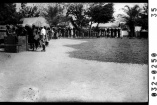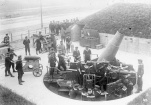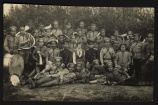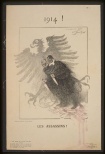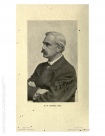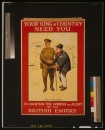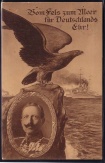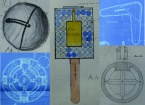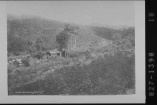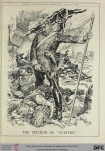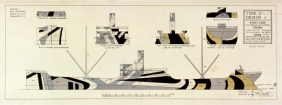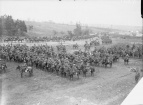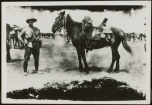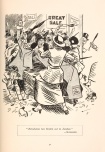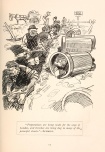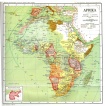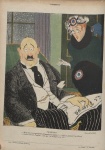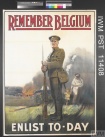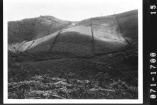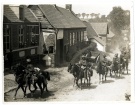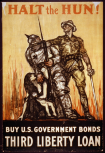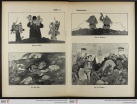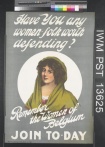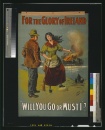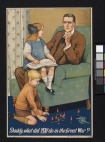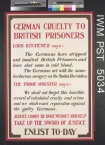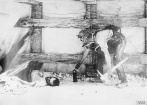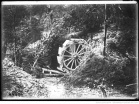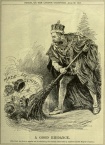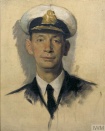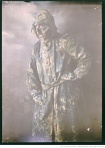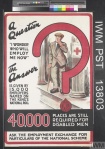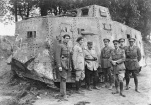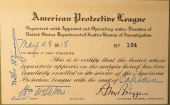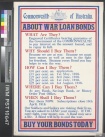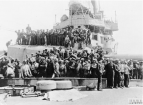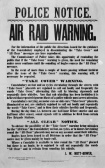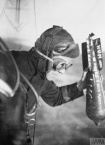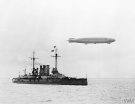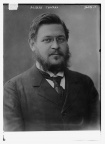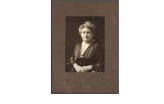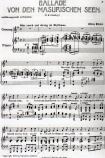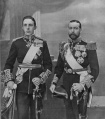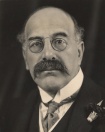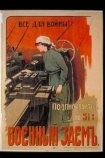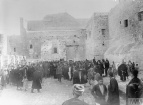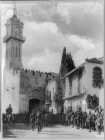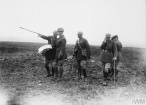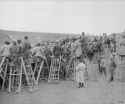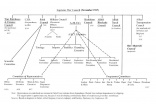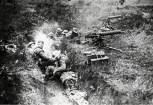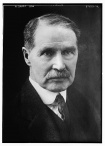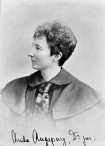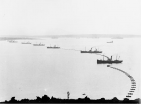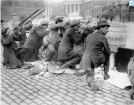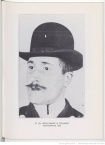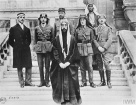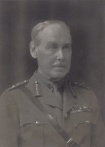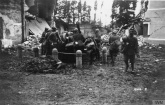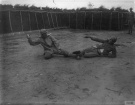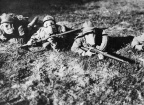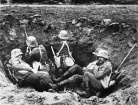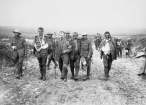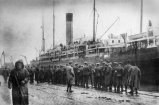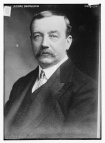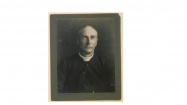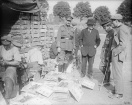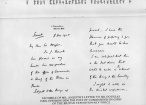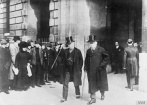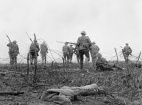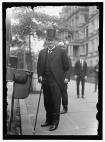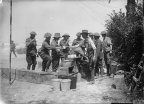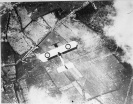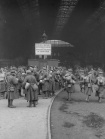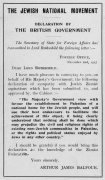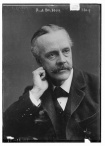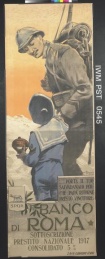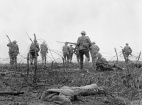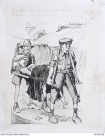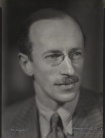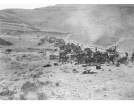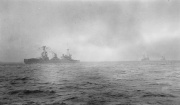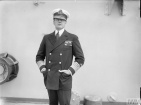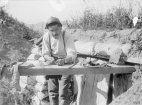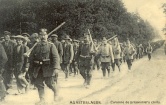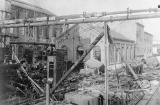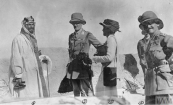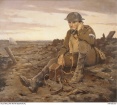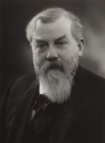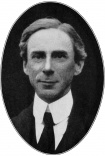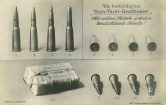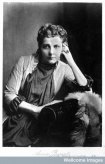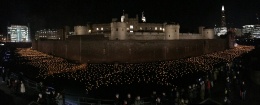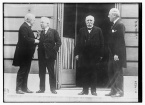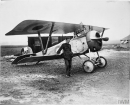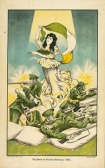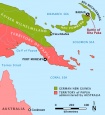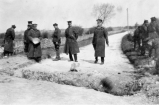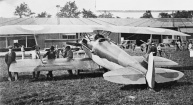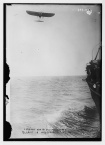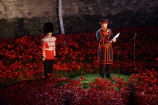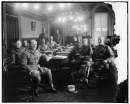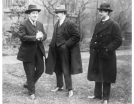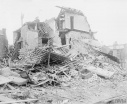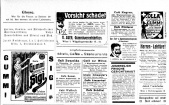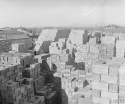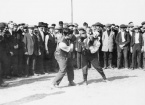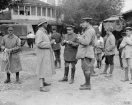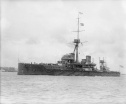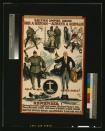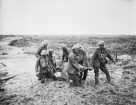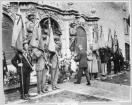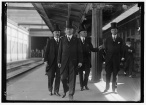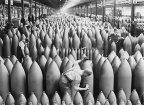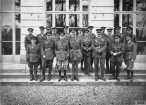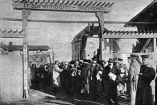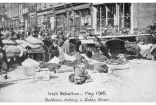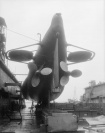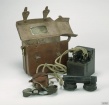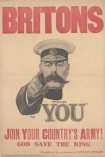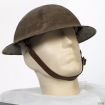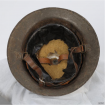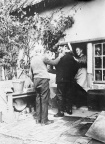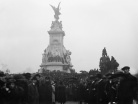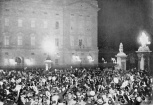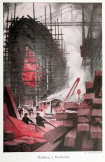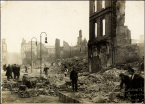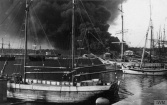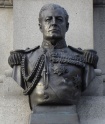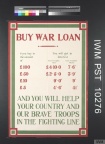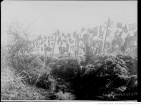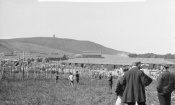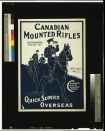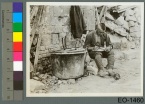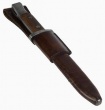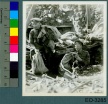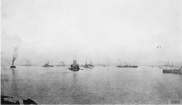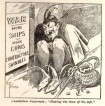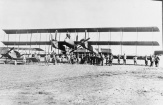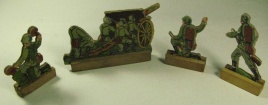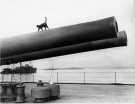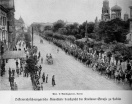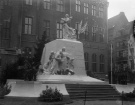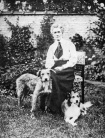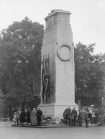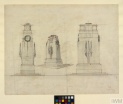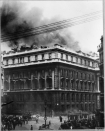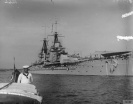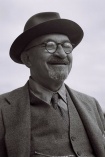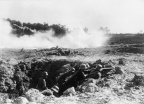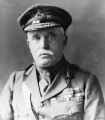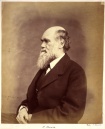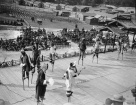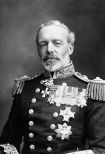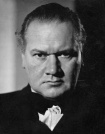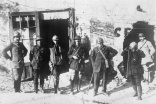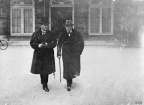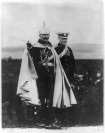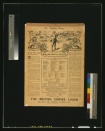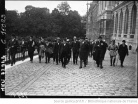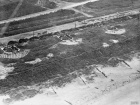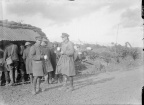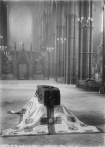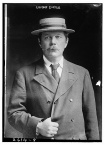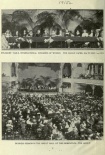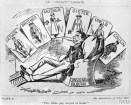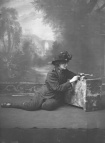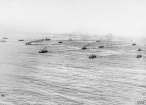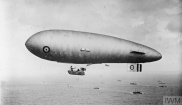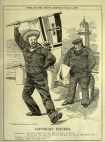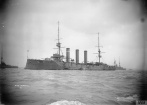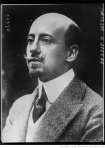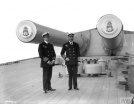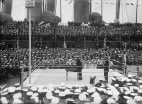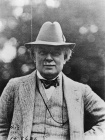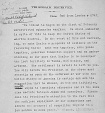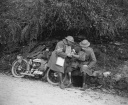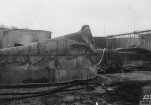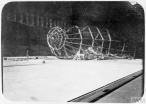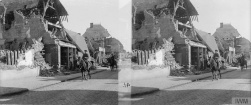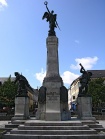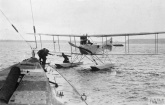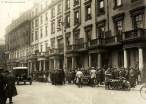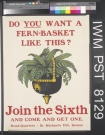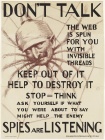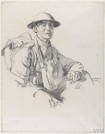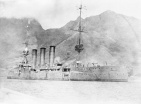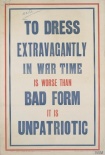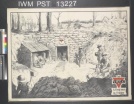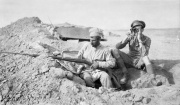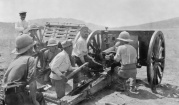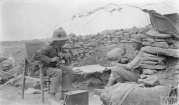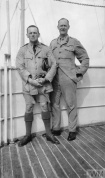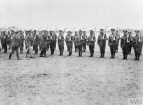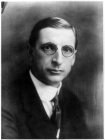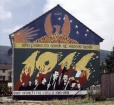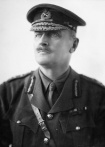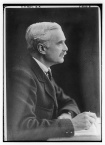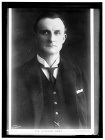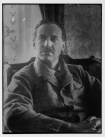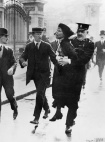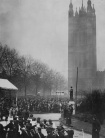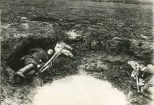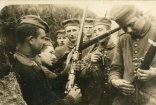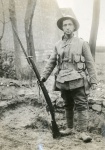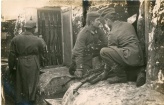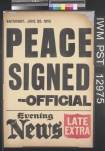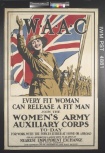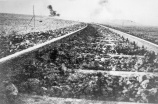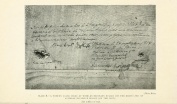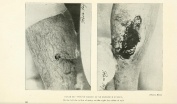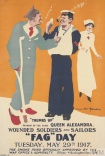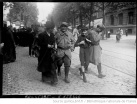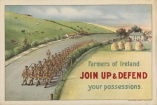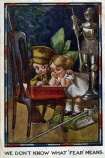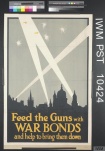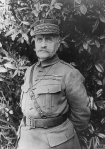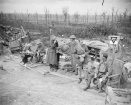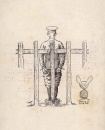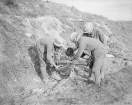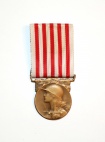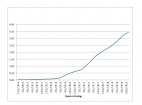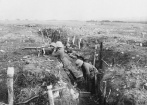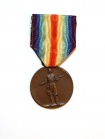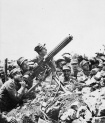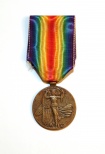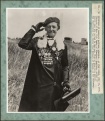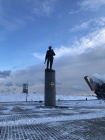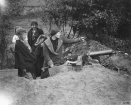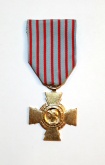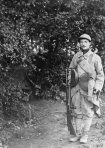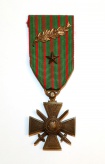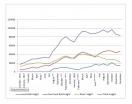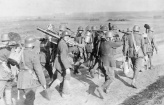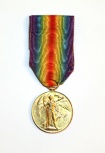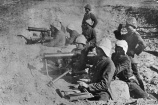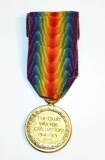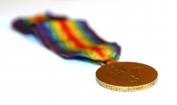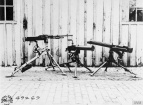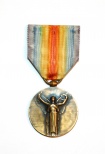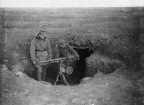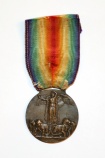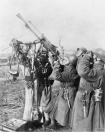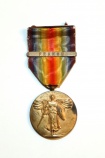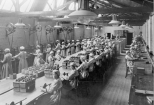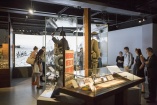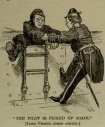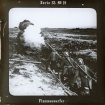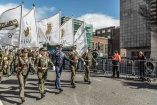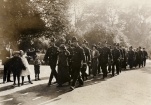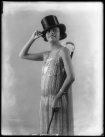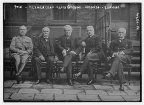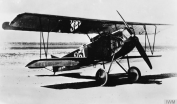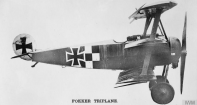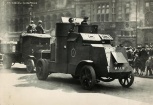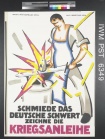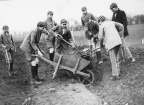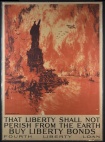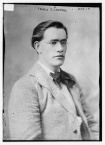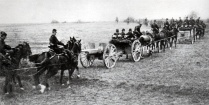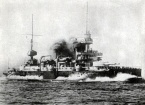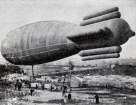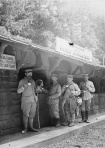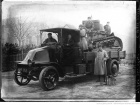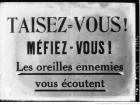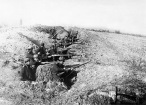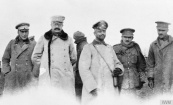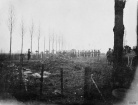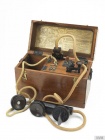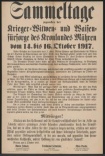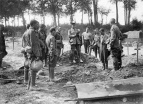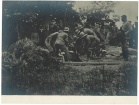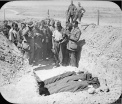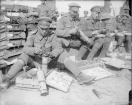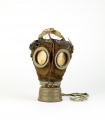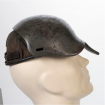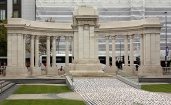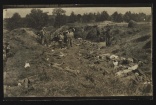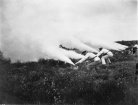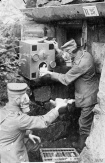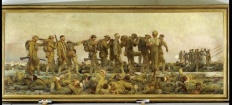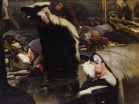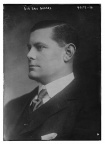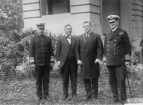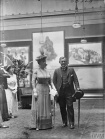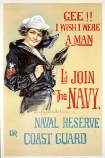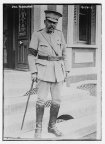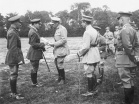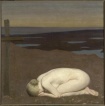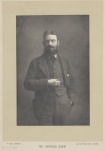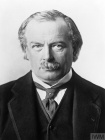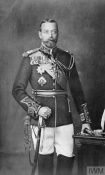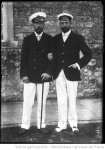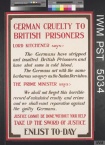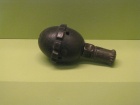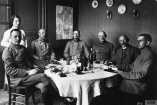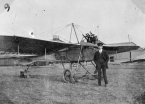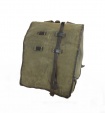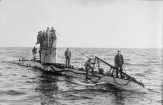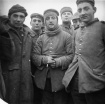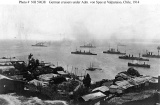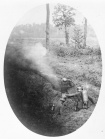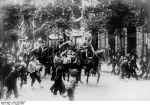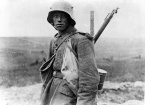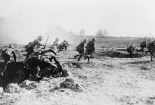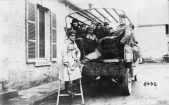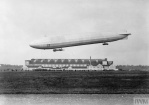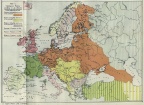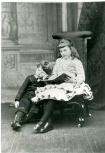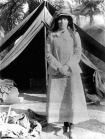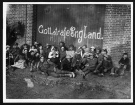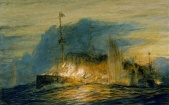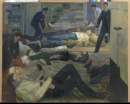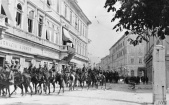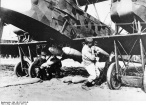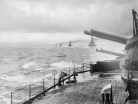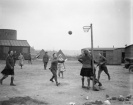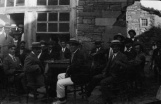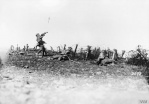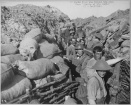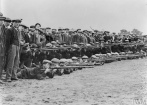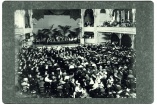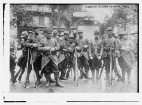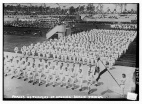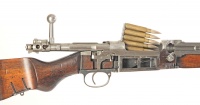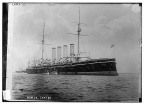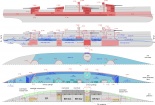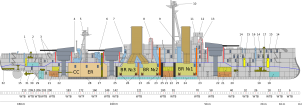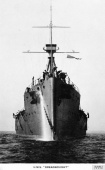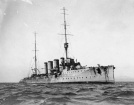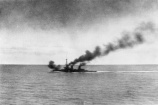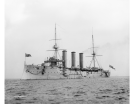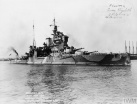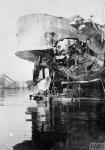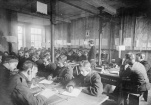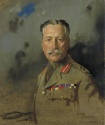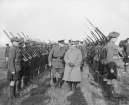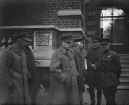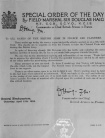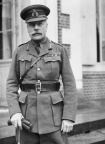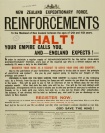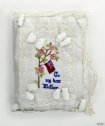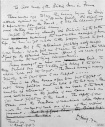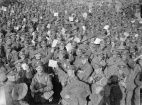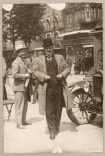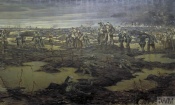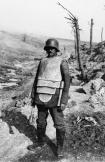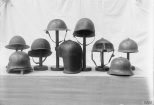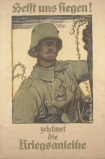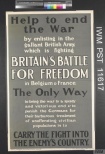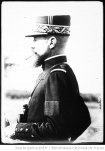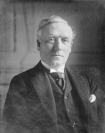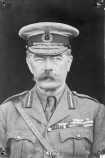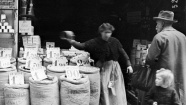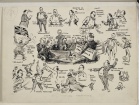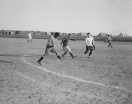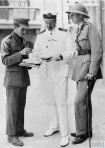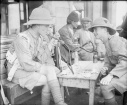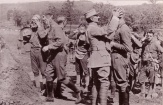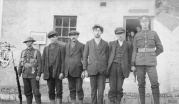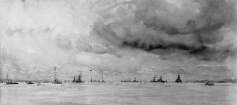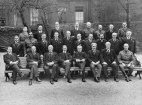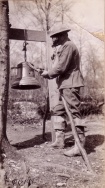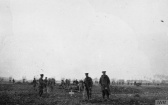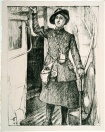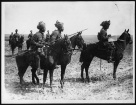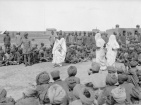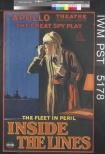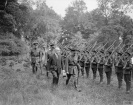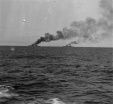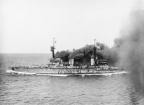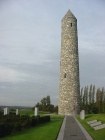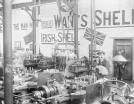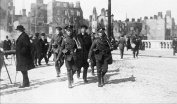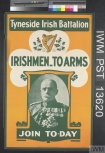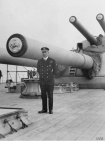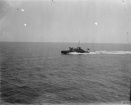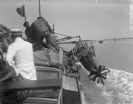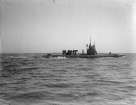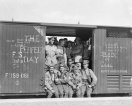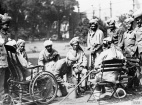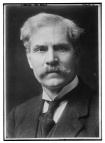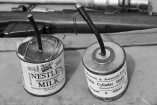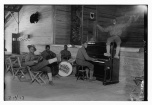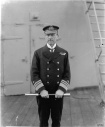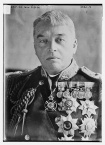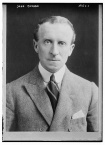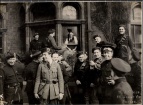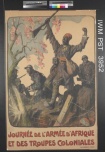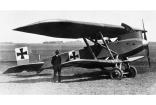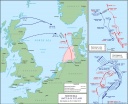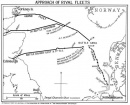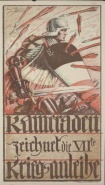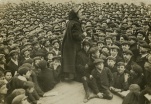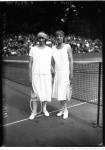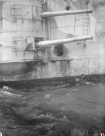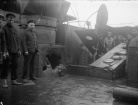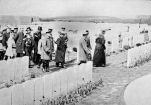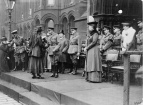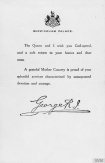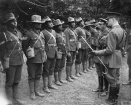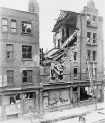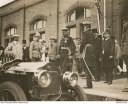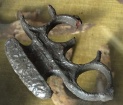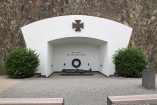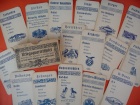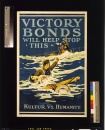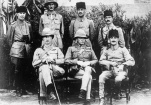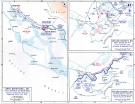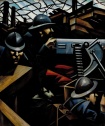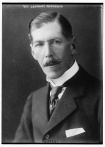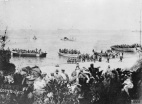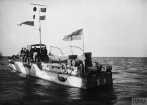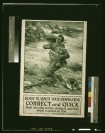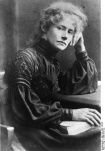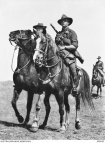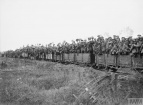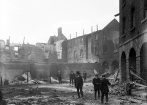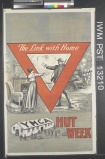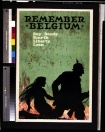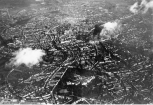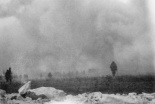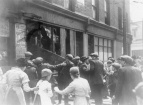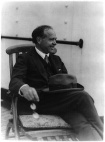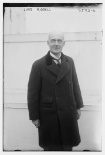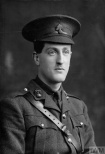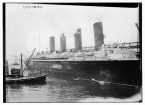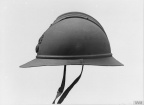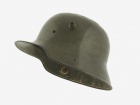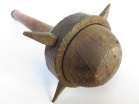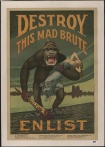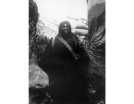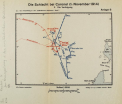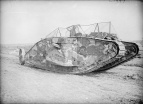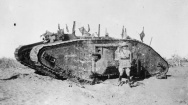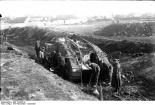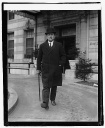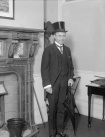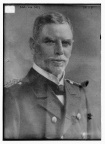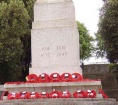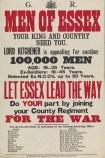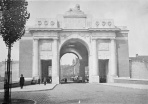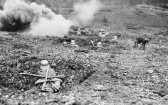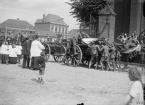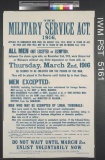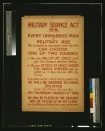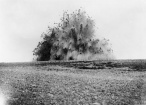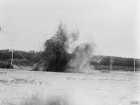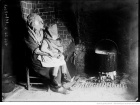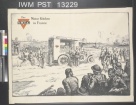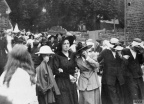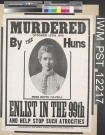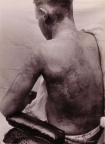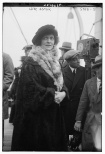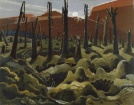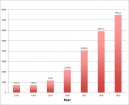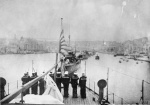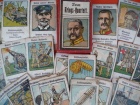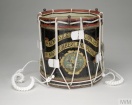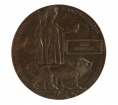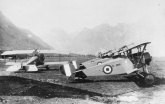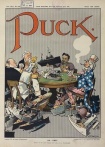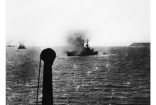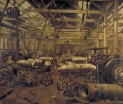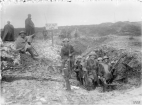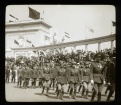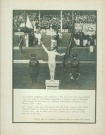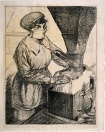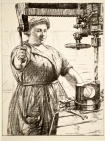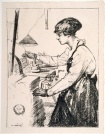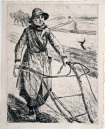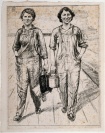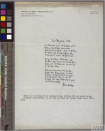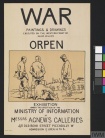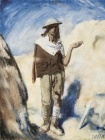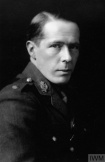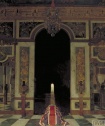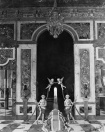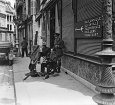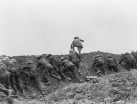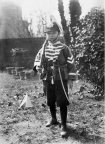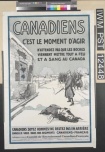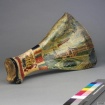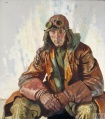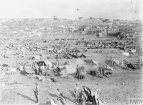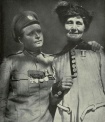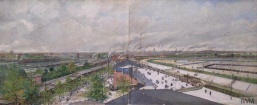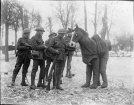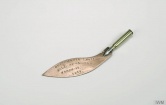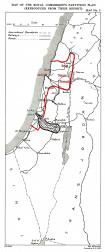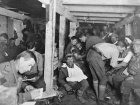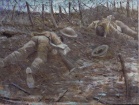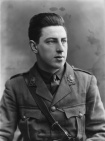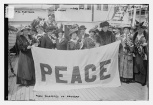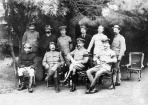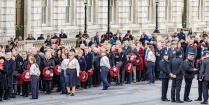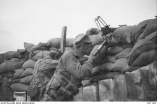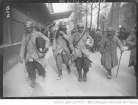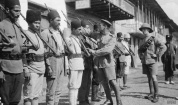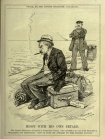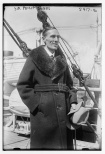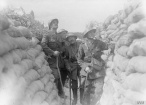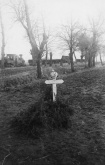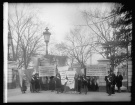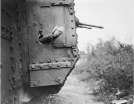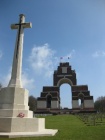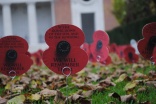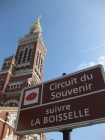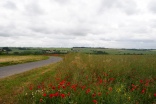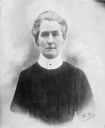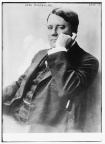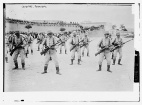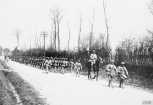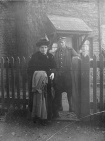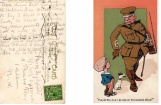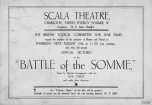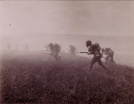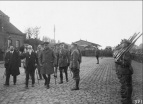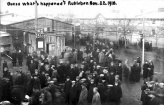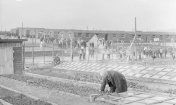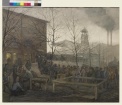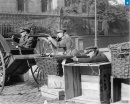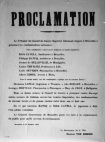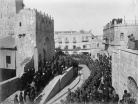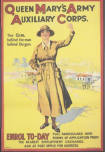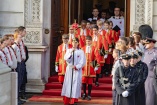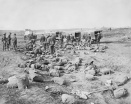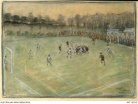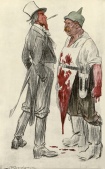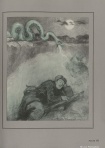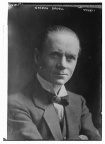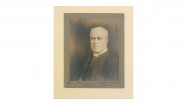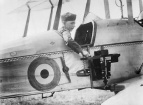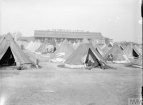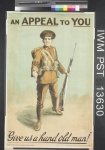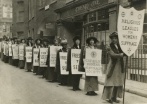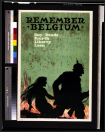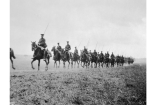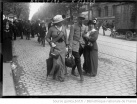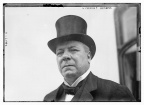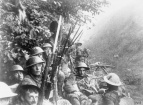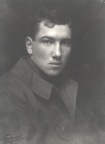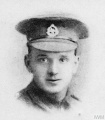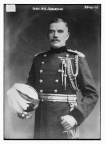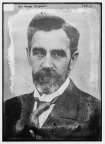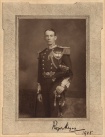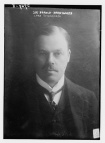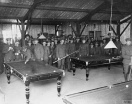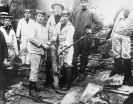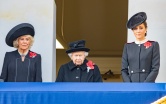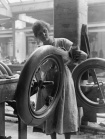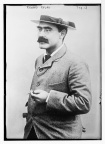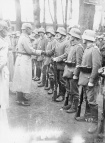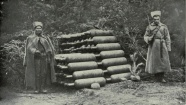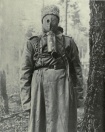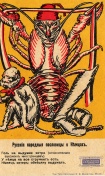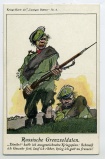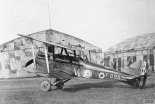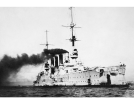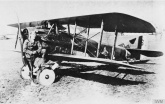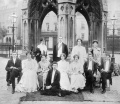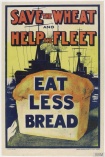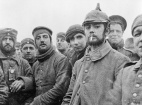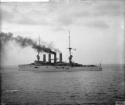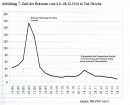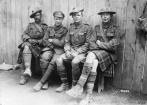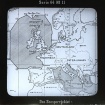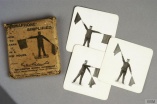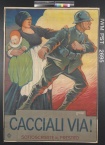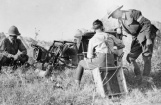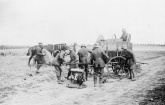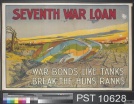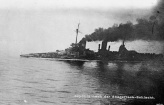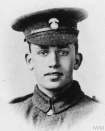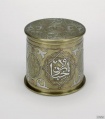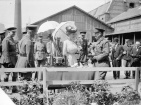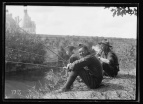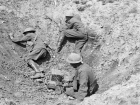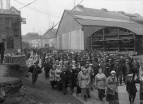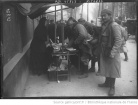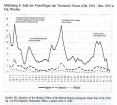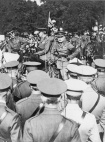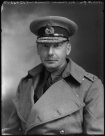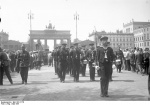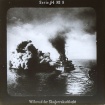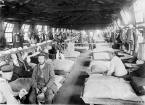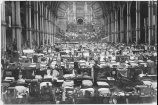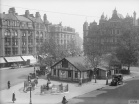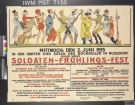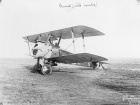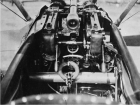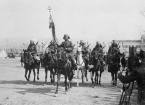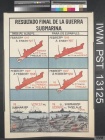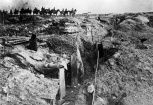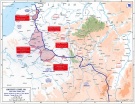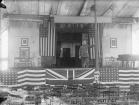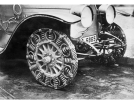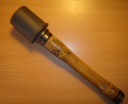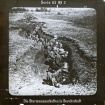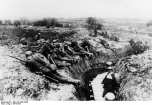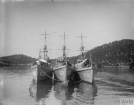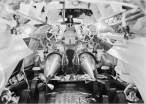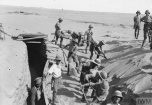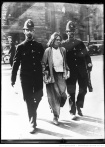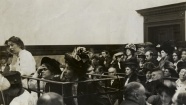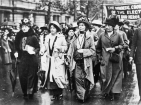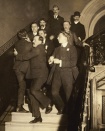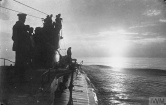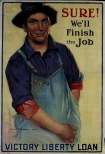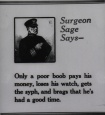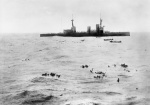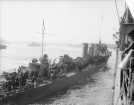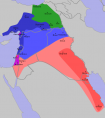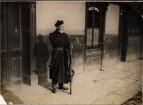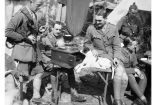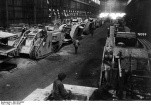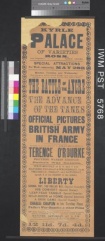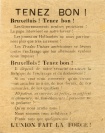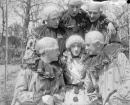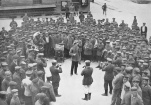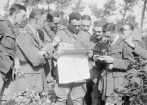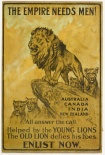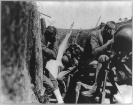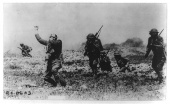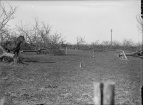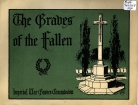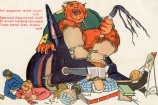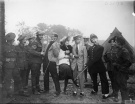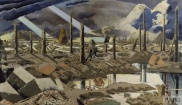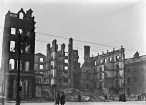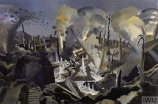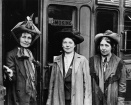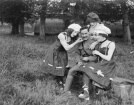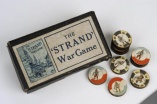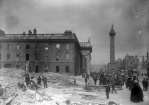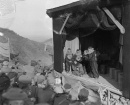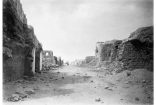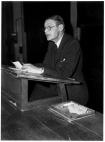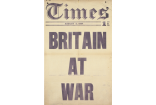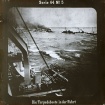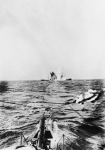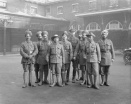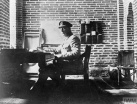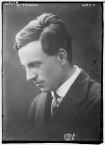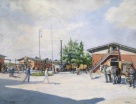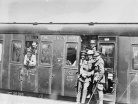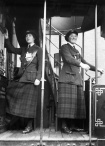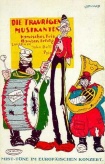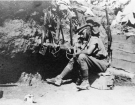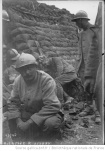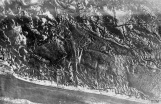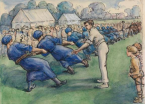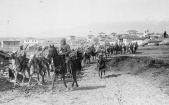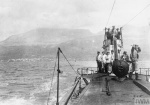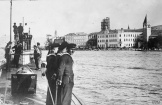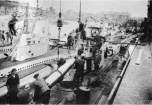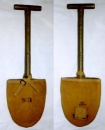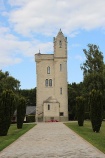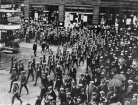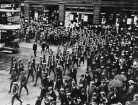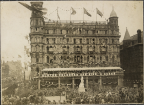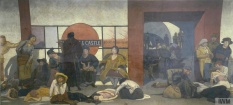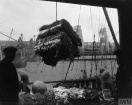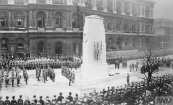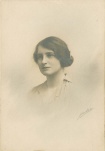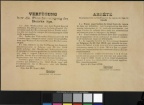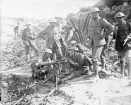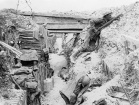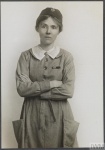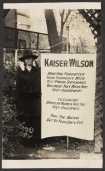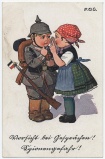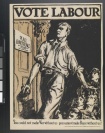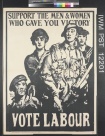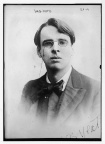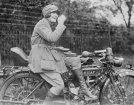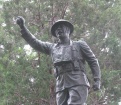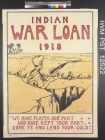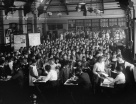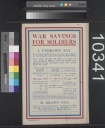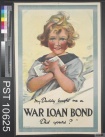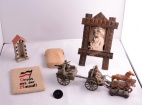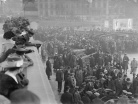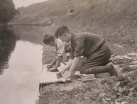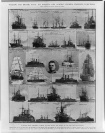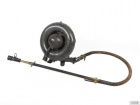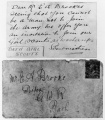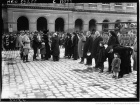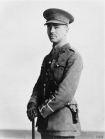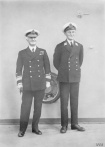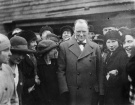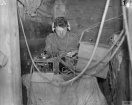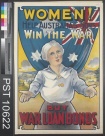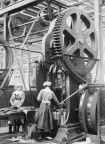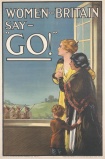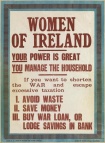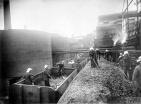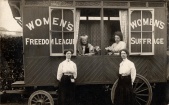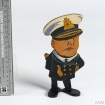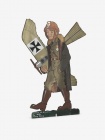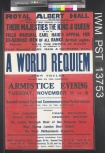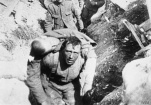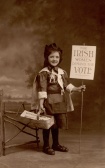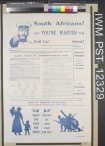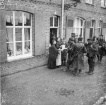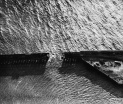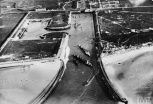Regions Great Britain and Ireland
Survey Articles (Regional)
Regional Thematic Articles
- Bereavement and Mourning (Great Britain)
- Between Acceptance and Refusal - Soldiers' Attitudes Towards War (Great Britain and Ireland)
- Centenary (Ireland)
- Centenary (United Kingdom)
- Civilian and Military Power (Great Britain and Ireland)
- Commemoration, Cult of the Fallen (Great Britain and Ireland)
- Dominions’ Military Relationship to Great Britain 1902-1914 (British Dominions)
- Easter Rising (Great Britain and Ireland)
- Film/Cinema (Great Britain)
- Food and Nutrition (Great Britain and Ireland)
- Governments, Parliaments and Parties (Great Britain and Ireland)
- Historiography 1918-Today (Great Britain)
- Historiography 1918-Today (Ireland)
- Labour, Labour Movements, Trade Unions and Strikes (Great Britain and Ireland)
- Literature (Great Britain and Ireland)
- Making Sense of the War (Great Britain and Ireland)
- Organization of War Economies (Great Britain and Ireland)
- Post-war Conflict (Great Britain and Ireland)
- Post-war Economies (Great Britain and Ireland)
- Post-war Societies (Great Britain and Ireland)
- Press/Journalism (Great Britain and Ireland)
- Pre-war Military Planning (Great Britain)
- Pre-war Paramilitary Mobilisation (Great Britain and Ireland)
- Prisoners of War and Internees (Great Britain)
- Propaganda at Home (Great Britain and Ireland)
- Recruitment to the Army (Great Britain and Ireland)
- Science and Technology (Great Britain and Ireland)
- Social Conflict and Control, Protest and Repression (Great Britain and Ireland)
- Subjectivity and Emotions (Great Britain and Ireland)
- Veterans' Associations (Great Britain and Ireland)
- War Aims and War Aims Discussions (Great Britain and Ireland)
- Warfare 1914-1918 (Great Britain and Ireland)
- War Finance (Great Britain and Ireland)
- War Losses (Great Britain and Ireland)
- Women's Mobilization for War (Great Britain and Ireland)
Encyclopedic Entries
- Aircraft, Fighter and Pursuit
- Aircraft, Reconnaissance and Bomber
- Allenby, Edmund Henry Hynman Allenby, Viscount
- Amphibious Raids on Ostend and Zeebrugge
- Angell, Ralph Norman
- Asquith, Herbert Henry
- Atlantic U-boat Campaign
- Balfour, Arthur James Balfour, Earl of
- Balfour Declaration
- Beatty, David Beatty, Earl
- Bell, Gertrude
- Besant, Annie
- Black and Tans and Auxiliaries
- Bonar Law, Andrew
- British Expeditionary Force
- British Mandate for Palestine
- Brittain, Vera
- Camouflage
- Carnegie, Lancelot
- Casement, Roger, Sir
- Cavalry
- Cavell, Edith Louisa
- Cenotaph
- Children's Literature
- Christmas Truce
- Churchill, Winston Leonard Spencer
- Church of England
- Citizenship (Great Britain)
- Close Combat Weapons
- Coffee
- Collins, Michael
- Communication Technology
- Coronel, Battle of
- Defence of the Realm Act (DORA)
- De Valera, Éamon
- Discussion: Humanitarianism
- Dreadnought, HMS
- Dunsterforce
- Empire
- Expanding Bullets
- Falklands, Battle of the
- Fear
- Feminist Pacifism
- Fisher, John Arbuthnot, Baron Fisher
- Flamethrower
- Formation of the Royal Air Force
- French, John Denton Pinkstone, Earl of Ypres
- Gas Warfare
- Geddes, Eric Campbell, Sir
- General Headquarters (Great Britain)
- George V, King of Great Britain
- Germanophobia (Great Britain)
- German Spring Offensives 1918
- Gibbs, Philip
- Grand Fleet
- Graves, Robert
- Grey, Sir Edward
- Haig, Douglas
- Haldane, Richard Burdon
- Hand Grenade
- Hankey, Maurice Pascal Alers Hankey, Baron
- Harmsworth, Alfred Charles William, Viscount Northcliffe
- Harmsworth, Harold Sidney, Viscount Rothermere
- Ideologies of Sport
- Infantry
- Invincible, HMS
- Irish Home Rule
- Jellicoe, John Rushworth Jellicoe, Earl
- Jutland, Battle of
- Keyes, Roger John Brownlow, Baron
- Khaki Election 1918
- Kitchener, Horatio Herbert Kitchener, Earl
- Lawrence, Thomas Edward
- Liddell Hart, Basil Henry, Sir
- Lloyd George, David
- London, Bombing of
- MacDonald, James Ramsay
- Machine Gun
- Masculinities
- Max Aitken, Lord Beaverbrook
- Medals and Decorations
- Mediterranean Theater, Naval Operations
- Mesopotamia, British Mandate for
- Military Board of Allied Supply
- Mine Warfare
- Morel, Edmund Dene
- Murray, Archibald James, Sir
- Music
- Nash, Paul
- Naval Race between Germany and Great Britain, 1898-1912
- Nevinson, C. R. W. (Christopher Richard Wynne)
- Orpen, William
- Owen, Wilfred
- Pals Battalions
- Pearse, Patrick
- Petroleum
- Poppy
- Practice of Sports
- Prostitution
- Rear Area on the Western Front
- Reconnaissance and Observation
- Rifles
- Robertson, William Robert
- Room 40
- Rubber
- Ruhleben Internment Camp
- Russell, Bertrand
- Sassoon, Siegfried Loraine
- Sea Power
- Shaw, George Bernard
- Shells Crisis of 1915
- Smoking and Cigarette Consumption
- Social Darwinism
- Soldiers' Equipment
- Soldiers' Humour
- Soldiers on Leave
- Spy Fever 1914
- Steel Helmet
- Stereotypes
- Stormtrooper
- Submarines and Submarine Warfare
- Suffragettes
- Supreme War Council
- Tamagnini de Abreu e Silva, Fernando
- Tanks and Tank Warfare
- Theater at the Front
- The Battle of the Somme (film)
- Townshend, Charles Vere Ferrers, Sir
- Toynbee, Arnold J.
- Trench Art
- Union of Democratic Control
- War Bonds
- War Collections
- War Poetry
- War Profiteers
- War Propaganda Bureau
- War Toys
- War Widows
- Wireless Telegraphy
- Young Men's Christian Association (YMCA)
- Zeppelin (Airship)
See also
- Air Warfare
- Alliance System 1914
- Animals
- Antisemitism
- Arms Race prior to 1914, Armament Policy
- Art
- Atrocities
- Bereavement and Mourning
- Between Acceptance and Refusal - Soldiers' Attitudes Towards War
- Caricatures
- Censorship
- Centenary (Computer Games)
- Centenary (Education, Pedagogy, Youth Programs)
- Centenary (Historiography)
- Centenary (Internet)
- Centenary (Libraries)
- Centenary (Museums)
- Centenary (Visual Arts)
- Children and Youth
- Civilian and Military Power
- Civilian Morale
- Colonial Empires after the War/Decolonization
- Commemoration, Cult of the Fallen
- Controversy: The Media's Responsibility for Crises and Conflicts in the Age of Imperialism
- Controversy: Total War
- Controversy: War Culture
- Controversy: War-related Changes in Gender Relations: The Issue of Women’s Citizenship
- Demobilization
- Drugs
- Economic Planning before 1914
- Enemy Aliens and Internment
- Espionage
- Film/Cinema
- Food and Nutrition
- Governments, Parliaments and Parties
- Graphic Arts and Advertising as War Propaganda
- Health, Disease, Mortality; Demographic Effects
- Historiography 1918-Today
- Hospitals
- Imperialism
- International Labour Organization
- International Law and the Laws of War
- July Crisis 1914
- Labor
- Labour Movements, Trade Unions and Strikes
- League of Nations
- Life and Death of Soldiers
- Literature
- Making Sense of the War
- Maps, Geography and the Representation of Space
- Media Discourse after the War
- Medicine and Medical Service
- Memory of the War: Popular Memory 1918-1945, 1945 to the Present
- Migration and Mobility
- Militarism
- Military Developments of World War I
- Military Justice
- Military Lessons of the First World War
- Moral Norms and Values
- Museums
- Mutilation and Disfiguration
- Naval Warfare
- Negotiating and Mediating Conduct of War
- Non-European Soldiers
- On the Road to Modern War
- Organization of War Economies
- Othering/Atrocity Propaganda
- Pacifism
- Peace Initiatives
- Photography
- Post-war Economies
- Post-war Societies
- Post-war Welfare Policies
- Press/Journalism
- Pre-war Military Planning
- Prisoners of War
- Propaganda at Home and Abroad
- Propaganda: Media in War Politics
- Property Rights and Economic Nationalism
- Raw Materials
- Red Cross
- Refugees
- Religious Mobilization and Popular Belief
- Rural Society
- Schools and Universities
- Science and Technology
- Sea Transport and Supply
- Social Conflict
- Social Costs of War
- Soldier Newspapers
- Staging War. Theatre 1914-1918
- State, Civil Society and Relief Organizations for War
- The Churches
- The Historiography of the Origins of the First World War
- The Military at Home
- The Paris Peace Conference and its Consequences
- The Way to War
- Transportation and Logistics
- Urban Societies and Cities
- Venereal Diseases
- Veterans' Associations
- Visualization of Violence
- War Aims and War Aims Discussions
- War Correspondents
- Warfare 1914-1918
- War Finance
- War Letters: Communication between Front and Home Front
- War Losses
- War Psychiatry and Shell Shock
- Wartime Emotions: Honour, Shame, and the Ecstasy of Sacrifice
- Weapons
- Western Front
- Willingly to War. Public Response to the Outbreak of War
- Women’s Mobilization for War
- Women War Reporters
- Xenophobia
Survey Articles (Regional)
-
Great Britain was with its Empire the most powerful of the major belligerents, the most politically and socially stable, and the best able to endure the strains of the war. Its great naval, financial … READ MORE
Regional -
Ireland’s war experience cannot be separated from Irish politics. Indeed, the story is not one of 1914-18 but of 1912-23, as the vast majority of people sought to change Ireland’s place in the … READ MORE
Regional
Regional Thematic Articles
-
This article provides a synthesis of research on bereavement and mourning in Britain during the First World War and its aftermath in the historical context of changing British mourning practices from … READ MORE
Regional Thematic -
Between Acceptance and Refusal - Soldiers' Attitudes Towards War (Great Britain and Ireland)
By Jessica Meyer
This article examines British soldiers’ attitudes towards the First World War. It looks at what motivated men to enlist and the strategies employed by the military for enforcing discipline and … READ MORE
Regional Thematic -
Irish engagement with the First World War was active and intense and yet, for much of the 20th century, commemoration of the war in Ireland was marked by division, antagonism, and amnesia. … READ MORE
Regional Thematic -
How did the British nation-state, visibly divided in the early 21st century along lines of competing national identities, political allegiances and attitudes to the European Union, … READ MORE
Regional Thematic -
By the early 20th century the United Kingdom had a well-established tradition of civilian control over the armed forces. This tradition came under strain during the Great War as the line … READ MORE
Regional Thematic -
The commemoration of the First World War in Britain and Ireland has a complex history. Immediately after the war, the dead were memorialised in a range of public and private spaces. Next of Kin … READ MORE
Regional Thematic -
The dominions of Australia, Canada, Newfoundland, New Zealand, and South Africa shared an ambiguous constitutional relationship with Britain. The self-governing dominions were free to implement their … READ MORE
Regional Thematic -
Although a military failure, the 1916 rebellion transformed Ireland by destroying the possibility of a political settlement between Irish nationalists and the British state and by popularising a … READ MORE
Regional Thematic -
This article explores how British cinematographers filmed the war and how the film industry, and later television, subsequently reflected and reinforced dominant public perceptions of the Great War. … READ MORE
Regional Thematic -
The Great War marked a period of profound upheaval in British politics. The old controversies of Edwardian politics were replaced by new debates about military strategy, civil-military relations and … READ MORE
Regional Thematic -
This historiographical piece surveys trends and key interventions in scholarship and writing on Great Britain during the First World War. It begins by looking at the first-hand accounts of those … READ MORE
Regional Thematic -
This historiographical article surveys key interventions in scholarship of Ireland during the First World War, exploring how the war has moved from the margins of historical scholarship to being … READ MORE
Regional Thematic -
The wartime demand for labour enhanced its economic and political strength. Industry was restructured, with engineering and other war work privileged. Trade unionism was greatly strengthened. The … READ MORE
Regional Thematic -
The literature produced in Great Britain and Ireland during and after the First World War spanned a wide range of genres and styles. Popular fiction and poetry were written and avidly read by … READ MORE
Regional Thematic -
At the outbreak of war, the populations of Britain and Ireland understood that values such as national honour, liberty, and the rights of small nations were at stake. It was therefore necessary to … READ MORE
Regional Thematic -
The First World War had a profound and longstanding effect upon the British economy. This article centres upon the mobilisation of British industry, changes in international trade, the implications … READ MORE
Regional Thematic -
The outbreak of war in 1914 interrupted a political crisis within the United Kingdom over the future of Ireland. Irish nationalists had been promised devolved government, which Ulster Unionists had … READ MORE
Regional Thematic -
The political and economic history of Britain during the 1920s and 1930s was moulded by the shock of the First World War. This article explores the massive impact that four years of war had on … READ MORE
Regional Thematic -
The post-war years in Great Britain and Ireland witnessed a period of transformative change, along with the persistence of social and economic inequalities. This essay discusses the period 1918-1929 … READ MORE
Regional Thematic -
Discussions of press and propaganda in the British Isles sometimes focus excessively on a few metropolitan newspapers, posters or atrocity stories, and examples of repressive censorship. However, the … READ MORE
Regional Thematic -
When Europe went to war in 1914, the continental belligerents had plans for the mobilisation, deployment, and initial campaigns of their armies. Britain was different. It had planned the mobilisation … READ MORE
Regional Thematic -
Several distinct cultural, political, and class-based groups organized paramilitary militias in Ireland prior to the First World War. Though never exchanging fire, their rhetoric and rapid military … READ MORE
Regional Thematic -
During the First World War, hundreds of thousands of men found themselves interned in Britain. These were made up of: civilians already present in the country in August 1914; civilians brought to … READ MORE
Regional Thematic -
British and Irish domestic propaganda evolved patchily throughout the war. It underwent several stages of development, was delivered by many official and unofficial bodies, including critics, and … READ MORE
Regional Thematic -
This article considers the challenges faced by Britain’s armies, engineers, scientists and administrators as they sought to equip the country for total war. During the first half of the war, a lack … READ MORE
Regional Thematic -
This article considers social conflict and protest within the United Kingdom during the First World War and state efforts to exert control. This complex, under-explored topic gained greater attention … READ MORE
Regional Thematic -
This article assesses the place of shell shock in the subjective experience of British servicemen in the First World War. It looks at the role of morale in recruiting and organising the British armed … READ MORE
Regional Thematic -
No British government had ever formed or provided for an army of the size required to honour its military commitments during the Great War. The initial treatment and ongoing support for veterans thus … READ MORE
Regional Thematic -
When Britain entered the First World War its war aims were simple: to restore Belgian sovereignty (as it was obliged to do, by the Treaty of London, 1839), and to maintain the balance of power in … READ MORE
Regional Thematic -
The British Expeditionary Force (BEF) participated from the outset in the fighting in France and Belgium. But compared to Germany and France, Britain’s main strength at the start of the conflict … READ MORE
Regional Thematic -
While Britain financed the war successfully doing so exacted a toll. To meet wartime expenditures British governments relied primarily upon borrowing rather than taxation. Domestic finance, however, … READ MORE
Regional Thematic -
This article briefly surveys the impact of the First World War on the lives of British women. Focusing on the suffrage campaign, the modernisation thesis, women in uniform and women’s lives in the … READ MORE
Regional Thematic
Encyclopedic Entries
-
The general trend in aircraft development during World War I was towards better-engined, stronger, higher flying, more heavily armed, and more capable airplanes. Strictly speaking, pure … READ MORE
Entry -
Much like fighter aircraft, World War I reconnaissance and bomber technology advanced rapidly throughout the war. As aircraft designs that combined lift, range, and stability were key to both … READ MORE
Entry -
Field Marshal Edmund Allenby was a British army officer who commanded a variety of formations on the Western Front, including the Third Army (October 1915 - June 1917) and the Egyptian Expeditionary … READ MORE
Entry -
On the night of 22-23 April 1918, the Royal Navy attacked the German occupied towns of Ostend and Zeebrugge in an effort to block the canals that linked the two cities to the German naval base at … READ MORE
Entry -
Norman Angell (birth name Ralph Norman Lane), built a long career as an internationalist pundit on his best-selling book of 1910, ''The Great Illusion'', which argued that financial interdependence … READ MORE
Entry -
Asquith was Prime Minister of the United Kingdom at the outbreak of war. He formed a coalition in May 1915 but accusations of ineffectiveness led to his replacement by David Lloyd George in December … READ MORE
Entry -
Between February 1915 and the Armistice, Germany conducted three submarine campaigns against British, Entente and neutral merchant shipping. The final unrestricted campaign that started in early 1917 … READ MORE
Entry -
Arthur James Balfour was a British Conservative politician and statesman who served as Prime Minister of the United Kingdom and was later Foreign Secretary. In the latter post, he issued the Balfour … READ MORE
Entry -
The Balfour Declaration, the document that set the stage for establishing the state of Israel, was the product of months of wordsmithing and political jockeying. The evolution of its final wording … READ MORE
Entry -
David Beatty was a British admiral. He is best known for leading Britain’s Battlecruiser Fleet in its disastrous rendezvous with Germany’s High Seas Fleet at the Battle of Jutland. An audacious … READ MORE
Entry -
Gertrude Bell’s earlier travels and intellectual interests, alongside her wartime intelligence-gathering activities, prefigured the role she would play in administering the new Iraqi state. In … READ MORE
Entry -
Annie Besant (1847-1933) was a British supporter of Indian nationalism. During World War I she propagated self-government for India and set up the All-India Home Rule League. Her political work … READ MORE
Entry -
The "Black and Tans" were British ex-soldiers recruited to reinforce the United Kingdom’s police force in Ireland. The "Auxiliaries" were a temporary force of paramilitary police, composed of … READ MORE
Entry -
Bonar Law was leader of the Conservative Party in Britain during the war. He entered Asquith’s coalition government in May 1915, and in December 1916 played a crucial role in Lloyd George becoming … READ MORE
Entry -
Between 1914 and 1918 the British Expeditionary Force grew from a small professional striking force into a mass army, which was not only bigger than any in Britain’s history, but was also capable … READ MORE
Entry -
The British Mandate for Palestine (1918-1948) was the outcome of several factors: the British occupation of territories previously ruled by the Ottoman Empire, the peace treaties that brought the … READ MORE
Entry -
Vera Brittain’s memoir ''Testament of Youth'', and her wartime diary published in 1981 helped to validate women’s experiences of the First World War, and especially the legacy of sorrow that they … READ MORE
Entry -
A technique of concealment and protection, a means to deceive but not kill, camouflage was significantly developed during the First World War. The technique enabled many artists to put their talents … READ MORE
Entry -
Minister plenipotentiary for England in Lisbon, there was consensus about Lancelot Carnegie as a diplomat in Portuguese public opinion. He was recognized as one of the people responsible for the … READ MORE
Entry -
Following a career as British consul and humanitarian investigator, Roger Casement became involved in the Irish nationalist movement and the Irish Volunteers. On the outbreak of war, he sought help … READ MORE
Entry -
By the beginning of the 20th century, field armies had integrated the combat arm of cavalry with the infantry and artillery branches for over a century. However, its involvement in battle … READ MORE
Entry -
Edith Cavell was an English nursing matron executed by the Germans in Brussels on 12 October 1915 for assisting enemy troops. After her death, she became one of the most famous women of World War … READ MORE
Entry -
The Cenotaph is a major British war memorial. Standing in Whitehall, London, it was designed by Sir Edwin Lutyens and first unveiled on 19 July 1919. It provided an immediate focus for public grief … READ MORE
Entry -
Extracurricular mobilization of children through literature took place between 1914 and 1918 on the home front of most belligerent countries. Propaganda for children depended on the war’s effects … READ MORE
Entry -
In December 1914, there were several truces between enemy soldiers along one part of the Western front. Widely publicized, they underscore how difficult it was for soldiers to adapt to the conditions … READ MORE
Entry -
Churchill was Navy Minister during the early stages of the war but was widely criticized over his handling of the Dardanelles campaign. He was demoted and soon afterwards resigned from the government … READ MORE
Entry -
In a conflict characterized as a Holy War between “right” and “might”, the support of the Church of England for Britain’s cause was unwavering. Those who had died in the cause of good (and … READ MORE
Entry -
World War I had a profound impact on concepts of citizenship. Not only did hosts of people find themselves under new sovereignty at the end of the war, but many individuals had to contend with the … READ MORE
Entry -
The basic tactical question for all military powers prior to 1914 was how to approach and attack an enemy who was directing massive fire against the attacker and who was making use of natural or … READ MORE
Entry -
Before World War I, coffee had become a popular drink in countries in the northern hemisphere, but when the war broke out, it was not regarded as an essential commodity. This article describes the … READ MORE
Entry -
Michael Collins was a revolutionary leader who rose to become chairman of the Irish provisional government in 1922 and Commander-in-chief of its army in the brief interval that supervened before his … READ MORE
Entry -
A selection of communication technologies, ancient and modern, was available at the outbreak of World War One. During the war, military communications evolved to meet new battlefield and military … READ MORE
Entry -
On 1 November 1914, the German East Asiatic Cruiser Squadron defeated the 4th British Cruiser Squadron near the harbour of Coronel, … READ MORE
Entry -
The Defence of the Realm Act (DORA) afforded the British government extraordinary emergency powers during the First World War. DORA’s remit was expansive, and grew in severity throughout the war, … READ MORE
Entry -
De Valera was a prominent figure in the Easter 1916 rebellion against British rule. He subsequently became head of the Irish … READ MORE
Entry -
This is the first in what it is hoped will become a series of discussion forums hosted by ''1914-1918-online''. In this discussion forum, General Editor Peter Gatrell invited contributions that … READ MORE
Entry -
Adopted in 1906, HMS ''Dreadnought'' represented an innovative battleship design that changed the nature of the Anglo-German naval race preceding the Great War. A hybrid Dreadnought battlecruiser … READ MORE
Entry -
Dunsterforce, officially called the British Military Mission to the Caucasus, was a secret force of 450 to 1,000 imperial soldiers commanded by Major-General Lionel C. Dunsterville. Its mission was … READ MORE
Entry -
World War I was not simply a conflict among European states but a global war of empires. The fighting took place not only in Europe, but also in Africa, Asia, and across the Middle East, and it … READ MORE
Entry -
During the First World War both sides accused each other of employing illegal small arms ammunition – either expanding or explosive bullets. The Hague Conventions of 1899 and 1907 outlawed … READ MORE
Entry -
During the Battle of the Falklands, the British naval force commanded by Admiral Sturdee defeated the German force under Admiral von Spee off the Falkland Islands on 8 December … READ MORE
Entry -
Fear
By Jan Plamper
Of the two world wars, the First World War was special in that fear figured prominently in a number of domains, including military tactics, psychiatry, and first-person sources. Fear was to be … READ MORE
Entry -
A minority section of the women’s movements opposed World War I and organized the International Congress of Women at The Hague in April 1915. Its participants demanded women’s rights and more … READ MORE
Entry -
John Fisher led the Royal Navy in the run-up to and in the early years of the First World War. A controversial figure in his lifetime and afterwards, his intentions and legacy are hotly disputed by … READ MORE
Entry -
The use of portable flamethrowers in combat was a First World War innovation. The German army took the lead in developing this form of warfare and remained the foremost practitioner of it throughout … READ MORE
Entry -
Created in April 1918 to overcome the complex challenges occasioned by wartime pressures, bureaucratic competition, and public outcry, the Royal Air Force became the world’s first independent air … READ MORE
Entry -
Sir John French was the commander of the British Expeditionary Force between July 1914 and December … READ MORE
Entry -
Gas warfare is a method of war that employs weapons that are designed to cause casualties primarily through the use of harmful chemical agents. The First World War constitutes the most extensive … READ MORE
Entry -
Eric Geddes was the most prominent example of Britain’s deployment of businessmen in government. He was the driving force behind the reorganization of the British Expeditionary Force’s (BEF) … READ MORE
Entry -
General Headquarters (GHQ) was the organization that commanded all British and Indian forces in a particular theater of the First World War. The most prominent of these organizations was the GHQ of … READ MORE
Entry -
King George V served as a figurehead for the nations of the British Empire throughout the war. He and his wife, Queen Mary, provided inspiration and support for both the armed forces and the civilian … READ MORE
Entry -
During the First World War Britain became gripped with a Germanophobic hatred in which both government and the press played a central role. This hatred impacted the German community that lived within … READ MORE
Entry -
The Spring Offensives of 1918 were Germany’s last attempt to defeat the British and French armies on the Western Front, and thereby win total victory. Their failure by the mid-summer left the … READ MORE
Entry -
Philip Gibbs was the most celebrated, and arguably the most important, of the British official war reporters attached by their newspapers to British General Headquarters on the Western Front from … READ MORE
Entry -
The Grand Fleet was Britain’s most important manifestation of sea power in World War I. As the primary instrument of blockade in the North Sea, it was tasked with denying Germany the succor of … READ MORE
Entry -
Robert Graves was a British writer who enlisted in August 1914. He fought at the Battle of Loos in 1915, and was wounded at the Somme in 1916. He published his first volumes of poems during the war, … READ MORE
Entry -
Grey was the longest-serving British foreign secretary of the 20th century. His time in office is controversial for his role in the outbreak of the First World … READ MORE
Entry -
Douglas Haig was Commander-in-Chief of the British Expeditionary Force from late 1915 to 1919. Undoubtedly he was one of the significant generals of the war, but Haig's tenure of command remains very … READ MORE
Entry -
Liberal Secretary of State for War 1905-1912. Haldane’s reforms of the British Regular Army and its auxiliaries were instrumental in ensuring that Britain could dispatch an expeditionary force to … READ MORE
Entry -
The hand grenade is a small hand-thrown bomb dating back to antiquity. Advances in chemistry and explosives technology saw the resurgence of the grenade shortly before World War I. Its effective use … READ MORE
Entry -
Maurice Hankey was responsible for adapting the British government’s administrative machinery to the needs of modern war. He became an influential behind-the-scenes adviser to British prime … READ MORE
Entry -
Lord Northcliffe was the owner of the influential London newspapers the Daily Mail and The Times, and a powerful critic of the Asquith administration’s prosecution of the war. In the final years of … READ MORE
Entry -
Lord Rothermere owned the London newspapers the ''Daily Mirror'' and the ''Sunday Pictorial'', and was the brother and political ally of Lord Northcliffe, the owner of the ''Daily Mail''. He was the … READ MORE
Entry -
At the beginning of the 20th century, two different systems of exercise and training were internationally known: gymnastics and sport. As a result of the First World War, the boundaries … READ MORE
Entry -
The First World War precipitated a revolution in infantry tactics that changed the course of warfare. Armies adapted to modern industrialized war along a four-year learning curve, moving from … READ MORE
Entry -
HMS ''Invincible ''was a British warship belonging to a type commonly known as battlecruisers. They sacrificed protection in order to combine the large guns of a battleship with the speed of a … READ MORE
Entry -
The campaign for Irish Home Rule lasted from 1870 until 1914. When Home Rule became a realistic possibility in 1912, a period of political turmoil ensued. Parliamentary solutions to the impasse were … READ MORE
Entry -
John Rushworth Jellicoe was a British admiral, technologist and fleet commander. He commanded the Grand Fleet from 1914-1916, and was First Sea Lord from 1916-1917. He commanded the Grand Fleet at … READ MORE
Entry -
On 31 May/1 June 1916 the British Grand Fleet and the German High Sea Fleet clashed at Jutland. It was the largest naval battle in history until the Battle of Leyte Gulf off the Philippines in 1944, … READ MORE
Entry -
Roger John Brownlow Keyes was a British naval officer of the First World War. As Chief of Staff in the Eastern Mediterranean Squadron, he was a central participant in the Dardanelles-Gallipoli … READ MORE
Entry -
The "khaki" general election of 1918 was held in Great Britain almost immediately after the Armistice. It was the first held under what was almost universal adult suffrage. The result was a crushing … READ MORE
Entry -
In foreseeing a long war and creating Britain's first mass army, Kitchener made a crucial contribution to the eventual Allied victory, but the widening nature of the conflict, and his own … READ MORE
Entry -
T.E. Lawrence’s exploits during the Arab Revolt have acquired mythical status, making it difficult to distinguish between what he actually achieved and what was the product of his overactive … READ MORE
Entry -
B.H. Liddell Hart served as a British infantry officer on the Western Front in 1915 and 1916 until he was gassed during the Somme Offensive. He is best known for his military historical and … READ MORE
Entry -
Lloyd George was a leading Liberal politician before World War I, who went on to play a central role in the United Kingdom’s war effort as Chancellor of the Exchequer (1908-1915), Minister of … READ MORE
Entry -
Germany’s aerial bombing campaign against Great Britain in the First World War, with London as its primary target, was the first sustained strategic bombing campaign in history. These raids, using … READ MORE
Entry -
Ramsay MacDonald opposed British entry into the European conflict in 1914. Although often represented as anti-war, he subsequently supported the Allied cause. He criticised balance of power diplomacy … READ MORE
Entry -
Between 1914 and 1918, the machine gun played an ever-increasing role on the battlefield. Today, even though artillery was responsible for the majority of deaths, the machine gun is the weapon most … READ MORE
Entry -
The First World War represents the apex of the ideal of the male warrior hero. Between 1914 and 1918, both the soldiers themselves and combatant societies relied upon gendered language to make sense … READ MORE
Entry -
This article offers a brief survey of the Canadian-born newspaper baron, Max Aitken, later known as Lord Beaverbrook, and his role in World War I. In 1916, Aitken created the Canadian War Records … READ MORE
Entry -
The Great War unfolded on multiple fronts and saw millions of men and women called up to serve in the armed forces. To recognise their military service as well as civilian efforts in wartime, … READ MORE
Entry -
The real naval war in the Mediterranean turned out to be a struggle against German and Austrian submarines and not a classic battle between major … READ MORE
Entry -
British mandate Mesopotamia marks the beginning of the formation of modern Iraq. The mandate period terminated when Iraq was accepted as a member of the League of Nations as an independent state on 3 … READ MORE
Entry -
The Military Board of Allied Supply, formed in mid-1918, attempted to centralize oversight of allied lines of communication in Europe and promote more efficient use of their limited … READ MORE
Entry -
Mine warfare or mining are the terms used to describe the digging of tunnels under the enemy’s line in order to place explosives to destroy a key location, to prevent an enemy from digging tunnels, … READ MORE
Entry -
E. D. Morel was one of the earliest critics of the secret diplomacy and alliance system that led to the start of the Great War. Imprisoned during the war by the British government for his writings, … READ MORE
Entry -
Sir Archibald James Murray was Chief of the Imperial General Staff from September 1915 to December 1915 and Commander-in-Chief of the Egyptian Expeditionary Force from March 1916 to June … READ MORE
Entry -
Music
By Akeo Okada
The First World War fundamentally changed the course of 20th century music. The era of late Romanticism, Symbolism and Expressionism had ended, the music culture of the European high … READ MORE
Entry -
Paul Nash was a British painter who served as an infantry officer and an official war artist during the First World War. His paintings and prints depicted the dystopian face of modern warfare etched … READ MORE
Entry -
The Anglo-German naval race was the most spectacular strand of the general maritime arms build-up before World War I. Often, albeit misleadingly, described as both the first and the prototypical arms … READ MORE
Entry -
C. R. W. Nevinson was a British painter who served as an official war artist in World War I. His paintings depicted soldiers suffering and dying on the battlefield. His work was well-received, … READ MORE
Entry -
William Orpen, portraitist and subject painter, born in Dublin, was one of the most successful artists of his generation. He enlisted in the British army in December 1915 and was appointed an … READ MORE
Entry -
Wilfred Owen was a poet and soldier who wrote some of the most memorable poems of the First World War. His theme of "the pity of war" continues to influence the cultural memory of 1914-18 and to … READ MORE
Entry -
The raising of the Pals battalions added considerable impetus to voluntary recruiting for the British army in the autumn of 1914 by combining patriotism and local loyalties, but subsequent … READ MORE
Entry -
Patrick Pearse was one of the leaders of the 1916 Easter Rising in which the Irish Republican Brotherhood (IRB), an extremely nationalist organization, attempted to establish an independent Ireland … READ MORE
Entry -
In World War I, the mobility of troops was of major strategic importance. New transportation means like trucks, as well as war planes, submarines and tanks, which began to revolutionize warfare … READ MORE
Entry -
To many, the remembrance poppy is the defining symbol of the First World War, embodying loss of innocence and loss of life. Its more potent cousin, the opium poppy, ties the flower to conflicts … READ MORE
Entry -
During World War I, sport competitions became very popular amongst the soldiers of the Central Powers and the Allies. Especially on the Western Front, the transition of the war into a battle of … READ MORE
Entry -
Prostitution was considered among the most important societal problems facing civilian-military authorities in belligerent countries during World War I. Despite growing military control of the … READ MORE
Entry -
The rear area was the space behind the front, linking the operational zone with the home territory. While this area constituted a place of calm and recreation for soldiers returning from front duty, … READ MORE
Entry -
Reconnaissance was aviation’s most important mission in the Great War. When war began, aircraft only performed observation and reconnaissance. The speed of intelligence gathered by aircraft changed … READ MORE
Entry -
The rifle was by far the most common weapon used in the world war. When the major powers entered the conflict, they possessed around 11 million rifles. During the war, they either manufactured or … READ MORE
Entry -
William Robert Robertson was the first British soldier to advance from private to field marshal. During the Great War, he initially served as the British Expeditionary Force’s quartermaster-general … READ MORE
Entry -
Room 40 was a highly secretive British intelligence organization within the directorate of intelligence of the Admiralty. Its primary task was to intercept and decrypt German wireless and telegraph … READ MORE
Entry -
During World War I, motor vehicles took on a key role as transport facilities for troops and equipment. They needed tires made of rubber, which as a result became a raw material of strategic … READ MORE
Entry -
The Ruhleben internment camp, situated on the outskirts of Berlin, held British civilian internees from its opening in November 1914 to its closure in November 1918. While the camp suffered from … READ MORE
Entry -
This article examines how the outbreak of war in 1914 established Bertrand Russell’s reputation as social critic with an international audience. It considers his major writings on a range of … READ MORE
Entry -
Siegfried Lorraine Sassoon was a British soldier, poet and novelist. His work bitterly exposes the horrors of the First World War and offers a soldier’s account of the … READ MORE
Entry -
Much attention has been accorded to the massive scale of military operations in the European theatre. However, sea power, which determined the control of global communications and was the key to … READ MORE
Entry -
An Irish-born writer and critic, best known as a playwright, George Bernard Shaw was an ardent opponent to World War I. Already in his fifties at the start of the war, Shaw was outspoken in his … READ MORE
Entry -
In 1914, quick-firing field artillery could fire more shells than domestic industries, geared to peacetime consumption levels, could supply. Armies, although recognizing the dangers, had … READ MORE
Entry -
During the First World War, governments, civilians and soldiers alike prized smoking for its morale-boosting qualities, in addition to a medicinal effect following combat and periods of intense … READ MORE
Entry -
Social Darwinism was an intellectual movement of the late 19th and early 20th centuries that merged Charles Darwin’s biological theory of evolution with theories about human … READ MORE
Entry -
The soldier’s personal equipment had a dual purpose: it was intended to enable him to carry out his military duties, and it was supposed to guarantee, independent of stationary installations, the … READ MORE
Entry -
Soldier’s humour, as expressed in jokes, songs and slang, reflected a dark, ironic and sardonic mind-set common among combatants. It usually contributed to individual psychological resilience, … READ MORE
Entry -
Starting in 1915, periods of leave known as "permissionnaires" played a vital role in supporting the morale of troops, allowing fighters to rest, and letting some families come together. These … READ MORE
Entry -
Spy Fever describes an anxiety or paranoia that enemy spies might be active within one’s own nation. The phenomenon was widespread in all theatres of World War I from at least August of 1914. Most … READ MORE
Entry -
The steel helmet was invented and fielded in response to increased lethality on the battlefield due to advances in artillery and fragmentation. World War I witnessed the first wide-spread use of the … READ MORE
Entry -
This article summarises the main wartime stereotypes that defined war propaganda in Germany, France, Great Britain, the USA and Russia. It focuses less on particular details of each national enemy … READ MORE
Entry -
Storm troopers were soldiers in specialized assault units, which emerged in the German army during the First World … READ MORE
Entry -
During the First World War the German government made extensive use of submarines, initially against warships and then, as the war progressed, most heavily against merchant shipping. However, the … READ MORE
Entry -
This article briefly introduces the suffragettes and their campaign, reflecting on their pre-war methods and the divisions that emerged within the movement. It then discusses their varied, sometimes … READ MORE
Entry -
The Supreme War Council was an Allied administrative organisation, created by the Entente governments in November 1917 to coordinate their military action. Its most significant achievement was to … READ MORE
Entry -
Fernando Tamagnini de Abreu e Silva was a Portuguese general during World War I. He organized the Instruction Division in Tancos and served as commander of the Portuguese Expeditionary … READ MORE
Entry -
World War I introduced new technologies and doctrine in a quest to overcome the tactical stalemate of the trenches. The first tanks had great potential that would be capitalized upon during the next … READ MORE
Entry -
Whether on the Western or Eastern Front, by German, French, British, Canadian, American and other armies, shows were regularly organized on the front lines and at base camps during the Great War. … READ MORE
Entry -
''Battle of the Somme'' was a feature-length British documentary film, released in August 1916 while the fighting on the Somme was still in progress. Filmed by commercial cameramen under military … READ MORE
Entry -
Sir Charles Vere Ferrers Townshend commanded the 6th (Poona) Division in Mesopotamia between April 1915 and April … READ MORE
Entry -
During World War I, Arnold J. Toynbee, as a member of the Political Intelligence Department, was charged with preparing analyses on the Middle East for the Paris Peace Conference. The global war was … READ MORE
Entry -
"Trench Art" is a genre of folk art comprised of items created in wartime, or from war materiel. It may be made by servicemen and women or by civilians, and is particularly associated with the First … READ MORE
Entry -
The Union of Democratic Control was a prominent opposition group in Britain that particularly criticised the operation of British foreign policy and the role of "secret diplomacy". It advocated … READ MORE
Entry -
The governments of all belligerent countries issued special loans to finance their expenditure after the war began. To mobilize the financial resources of their peoples required concerted war bonds … READ MORE
Entry -
This article examines the concept of war poetry and considers the range of poetic responses generated by the Great War from an international … READ MORE
Entry -
As a long-lasting industrial war, the Great War led to the realization of considerable profits throughout industrialized countries. Both real and imagined, they structured many wartime facets, from … READ MORE
Entry -
The British government set up a War Propaganda Bureau in 1914. It came to be known as Wellington House after its location in Buckingham Gate, London. The organization was the centre of British … READ MORE
Entry -
In the First World War, war toys were regarded as a means to strengthen children’s identification with the war effort. Production and consumption of war toys in 1914 to 1915 reached heights never … READ MORE
Entry -
One third of the 9.7 million soldiers killed or declared missing during the Great War left behind a widow. The mourning of these women was conditioned as much by the social conventions practiced … READ MORE
Entry -
Wireless telegraphy became an integral part of warfare on the ground, in the air, and at sea by 1918. Wireless helped to make the war global, though historians still debate its impact on the course … READ MORE
Entry -
The YMCA was a Christian charitable organization that provided a range of rest and recreational facilities for soldiers in Britain and on various fronts during the … READ MORE
Entry -
Zeppelins heralded the potential of strategic bombing. Although airships were originally used for maritime and army reconnaissance, Germany was first to employ them as a strategic weapon. The German … READ MORE
Entry
See also
-
Air Warfare
By Ross Mahoney and James Pugh
This article considers the use and evolution of air power during the First World War. By focusing on the principal air power roles – control of the air, tactical, strategic, and naval and maritime … READ MORE
Thematic -
Alliances were an important feature of the international system on the eve of World War I. The formation of rival blocs of Great Powers has previously considered a major cause of the outbreak of war … READ MORE
Thematic -
During the First World War millions of animals were utilised for war work, and creatures great and small were a day-to-day part of most soldiers’ lives. Horses, dogs, and pigeons were used … READ MORE
Thematic -
The First World War and its direct repercussions in the postwar period (revolution, counterrevolution, the founding of republics, and the Paris peace treaties) mark a profound caesura not only in the … READ MORE
Thematic -
New weapons produced during the Industrial Revolution in the late 1800s heightened existing tensions among European nations as countries strove to outpace their enemies technologically. This … READ MORE
Thematic -
Art
By Sue Malvern
The nature of the First World War put an end to traditions for battle painting. Instead, war art by younger more progressive artists was the best received because it was judged the most authentic. … READ MORE
Thematic -
The term "atrocity" describes an act of violence condemned by contemporaries as a breach of morality or the laws of war. "Atrocities" are culturally constructed; by 1914, an international discourse … READ MORE
Thematic -
In the modern era, new forms of mourning and meaning-making for fallen soldiers emerged. The human losses of the First World War were largely mourned, honoured and remembered within … READ MORE
Thematic -
Soldiers’ attitudes towards the Great War are a controversial issue, as they prove difficult to assess and raise complex methodological questions. They evolved during the course of the conflict, … READ MORE
Thematic -
This article presents cartoonists as patriotic propagandists mobilizing their pens and brushes for the national cause during the war. It analyses their techniques for arousing emotions such as … READ MORE
Thematic -
Censorship was an indispensable war weapon: its task was to keep the people in an atmosphere of utter ignorance and unshaken confidence in the authorities, and to allow their boundless indoctrination … READ MORE
Thematic -
The First World War centenary saw an emergence of new portrayals of the conflict in computer games. These new games sought either to tell new stories of war and conflict during the time period or to … READ MORE
Thematic -
The centenary of the First World War revealed palpable anxieties around a loss of connection to an event that was now 100 years old and without any living survivors. As a result, a good degree of … READ MORE
Thematic -
Innovative historical scholarship played an important role in the shaping of memory during the centenary of the First World War. It guided international public memory, was part of it and as such … READ MORE
Thematic -
The centenary events surrounding the First World War have produced a significant amount of digital content in various forms, and thus has set a precedent for how large scale post-war memorisation can … READ MORE
Thematic -
Libraries (local, specialist, and national) contributed in numerous and important ways to commemorative activities during the centenary of the First World War. These included making use of their … READ MORE
Thematic -
This article discusses how European museums – in particular, national war museums – dealt with the centenary of World War I. These museums still tend to tell the story of World War I from a … READ MORE
Thematic -
The commemorative period between 2014 and 2018 was marked globally by numerous exhibitions of original artworks that had been commissioned and created during and immediately after World War 1. Most … READ MORE
Thematic -
Mass conscription recast relationships in families, raised minors’ potential as wage earners, and decreased supervision over them. War ravaged the health of young people in Central Europe while … READ MORE
Thematic -
By 1914 the leading states had succumbed to varying degrees of militarism, subordinating other interests to those of the armed forces, yet all were governed by regimes in which the ultimate authority … READ MORE
Thematic -
This article deals with civilian morale during the First World War. Between 1915 and 1918, governments “discovered” the importance of civilian morale and developed vast systems of surveillance to … READ MORE
Thematic -
The First World War saw the colonial empires of France and Britain mobilised to aid European and imperial war efforts. This mobilisation and the difficulties of demobilisation placed considerable … READ MORE
Thematic -
The First World War ushered in an unprecedented wave of commemorations. Mass death elicited a construction spree in memorial objects and sites across all countries and territories involved in the … READ MORE
Thematic -
Controversy: The Media's Responsibility for Crises and Conflicts in the Age of Imperialism
By Peter Geiss
The article discusses the role of the media in the complex international process leading to the First World War with a focus on the press of the great powers. Recent research has shown that the … READ MORE
Thematic -
Total war is a controversial term used in the past by politicians, publicists and military officers as well as by computer specialists and academics in the present. Since its conception by French … READ MORE
Thematic -
Cultural approaches to the Great War have played a key part in the renewal of First World War Studies. French historians were instrumental to this process, not least with the introduction in the … READ MORE
Thematic -
Controversy: War-related Changes in Gender Relations: The Issue of Women’s Citizenship
By Birgitta Bader-Zaar
The idea that World War I was a watershed in gender relations has pervaded both contemporary narratives and historiography. In contrast to earlier studies, research now tends to give a more nuanced … READ MORE
Thematic -
The end of fighting in 1918 raised hopes for swift and equitable military demobilization amongst soldiers and civilians. The timing and nature of demobilization varied greatly, though, due to … READ MORE
Thematic -
Throughout history, intoxicants were an important part of the war experience. The First World War was by no means an exception in that respect: its main “war drugs” were alcohol (mostly beer, … READ MORE
Thematic -
This article surveys the financial and economic planning for war before 1914 in the European Great Powers that initially entered the conflict – Austria-Hungary, Britain, France, Germany and Russia. … READ MORE
Thematic -
The internment of enemy aliens in the First World War was a global phenomenon. Camps holding civilian as well as military prisoners could be found on every continent, including in nation-states and … READ MORE
Thematic -
During the entire war, warring powers used the “secret war” to try to break the balance of the battlefield. Generally created in the previous few decades, intelligence and security services saw … READ MORE
Thematic -
The First World War played a significant role in the evolution of film both as a medium for reporting war and as a tool for the propagandist manipulation of public opinion to support the war effort. … READ MORE
Thematic -
During the First World War, food became a major issue for military and civilian matters. This contribution aims to discuss the food situation in the belligerent countries in connection with global … READ MORE
Thematic -
One sees a wide range of political regimes from a democratic republic with universal male suffrage (France) to parliamentary, constitutional, or even oligarchical monarchies in the countries that … READ MORE
Thematic -
This article discusses the close relationships between national governments, advertising trades and print media industries and assesses their significance for liberal democracy and national identity … READ MORE
Thematic -
The rapid spread of epidemics ravaged military personnel and civilians in and outside Europe’s warzones during the Great War. Further, the great influenza pandemic of 1918-1919 became a global … READ MORE
Thematic -
There have been four generations of historical writing about the 1914-1918 war. The first was composed of contemporaries who either fought in the war or helped run it, and spanned the period … READ MORE
Thematic -
Hospitals framed and configured the convalescence of wounded and sick soldiers during the Great War. Medical facilities behind the lines and in the rear often operated under difficult conditions. … READ MORE
Thematic -
This article focuses on the extent to which imperialism contributed to the outbreak of the First World War. The first part describes the emergence of specific imperialist cultures and attitudes in … READ MORE
Thematic -
The Treaty of Versailles was signed on 28 June 1919, establishing both the League of Nations and another international organization: the International Labour Organization (ILO). The ILO was founded … READ MORE
Thematic -
The article examines international efforts to curb states’ war-making prerogatives in the second half of the “long” 19th century. It captures new humanitarian sentiments circulating … READ MORE
Thematic -
The international crisis that began with the assassination of Archduke Franz Ferdinand in Sarajevo on 28 June 1914 and culminated in the British declaration of war on Germany on 4 August is referred … READ MORE
Thematic -
Across the major belligerent powers, industrial production and the mobilization and organization of industrial labor became central to the conduct of the First World War. States and private … READ MORE
Thematic -
This article compares the history of labour movements during the war across a range of European countries. It charts the impact of the economic realities of the war upon labour and analyses the … READ MORE
Thematic -
While public memory of the First World War in Europe often focusses on the deaths caused by the conflict, soldiers who served not only died in the war; they also lived. That process of living … READ MORE
Thematic -
This article seeks to present an overview of First World War literature across many of the combatant nations from the outbreak of the conflict up to the beginning of the Second World War. Taking a … READ MORE
Thematic -
Claims to “just war” formed the basis for the propaganda campaigns of the First World War. Propaganda on all sides focused on three interrelated issues to endorse the decision to enter the … READ MORE
Thematic -
The discourse about the Great War during the interwar period was shaped by numerous factors. The emergence of new media facilitated the use of new forms of expression and profoundly changed the … READ MORE
Thematic -
It is impossible to talk about “the” medical care or “the” medical service of World War I. Medical care varied greatly, depending on geography, strategy, and national, social, or economic … READ MORE
Thematic -
What role do representations of the First World War play in media that reach a wide audience beyond the circle of experts? The following contribution focuses on this important question. Given the … READ MORE
Thematic -
There is an ongoing debate among historians whether the First World War did in fact lead to drastic changes in migration and migration policies. The war certainly resulted in numerous severe … READ MORE
Thematic -
Militarism is a vague term that has meant different things to different people at different times. It can be analysed as a popular phenomenon, or as a feature more at home in the halls of power, or … READ MORE
Thematic -
Despite World War I’s reputation as a senseless bloodbath whose military operations were devoid of any intelligent thought, the period 1914-1918 was history’s single largest revolution in … READ MORE
Thematic -
This essay offers a comparative survey of the practice of military justice among several of the key belligerent powers. Accused soldiers enjoyed little in the way of legal protection, and punishment … READ MORE
Thematic -
This article examines the lessons derived by the military organizations that participated in the First World War on land, at sea, and in the air. It demonstrates that while military and naval … READ MORE
Thematic -
Change and continuity marked belligerent societies’ norms and values during the First World War. Normative institutions such as marriage and the family proved basically resilient but … READ MORE
Thematic -
This article describes the lives and afterlives of the First World War museums in France, Russia, Germany, and in Britain and its Dominions Canada, Australia, and New Zealand. In all these polities, … READ MORE
Thematic -
The First World War created disfigured and mutilated bodies on a grand scale. Never before had the bodies of soldiers been so devastated by a conflict. Developments in established weapons such as … READ MORE
Thematic -
All of the great belligerent states of World War I were naval powers and engaged in operations around the globe. While the course of the war did not unfold as predicted by naval officials, it did … READ MORE
Thematic -
Many issues surrounding the conduct of war in the years 1914-1918 were impervious to international negotiation or mediation, due either to a complete lack of consensus or to an absence of trust and … READ MORE
Thematic -
This article examines the use by Great Britain and France of colonial subjects from their empires to fight during the First World War. Other Great War soldiers hailed from locations outside of … READ MORE
Thematic -
The Great War was never considered the “war to end all wars” by the states and armed forces in conflict. The war’s legacies were processed in a wide variety of ways depending on forms of … READ MORE
Thematic -
The First World War was a global conflict that caught most of the participants ill-prepared for the demands of total war. Economic mobilization beyond the initial needs of the troops involved … READ MORE
Thematic -
In August 1914, a targeted and systematic manipulation of opinion by the media, intellectuals and authorities started. Atrocities were attributed to the enemies that arose from preformed images or … READ MORE
Thematic -
The idea of peace in total war may seem irrelevant, but pacifism, or peace activism, did exist during the First World War. A seemingly robust European peace movement existed before 1914, but it … READ MORE
Thematic -
This paper examines major peace initiatives during World War I. It describes efforts by the chief European belligerents to split apart enemy coalitions with separate peace settlements as well … READ MORE
Thematic -
The First World War represents a watershed in the history of war photography. It was the first conflict to be photographed in detail by all the participants and the first in which photography was … READ MORE
Thematic -
Post-war economies were beset with problems, ultimately leading to the Great Depression that ruined the world economy and resulted in “beggar-thy-neighbour” national policies. Roosevelt’s … READ MORE
Thematic -
The First World War caused unprecedented disruption to societies across the globe, from Western and (especially) Central and Eastern Europe to East Africa. While many survivors could celebrate an end … READ MORE
Thematic -
The Great War gave new impulses to the further development of public welfare systems which had emerged in previous decades. The desire for the social protection of the population and the restoration … READ MORE
Thematic -
Word War I had a significant impact on the evolution of the European media scene. Before the start of the war, newspapers in Europe were increasingly popular, free and independent, and transnational. … READ MORE
Thematic -
German and British war planning has attracted a great deal of attention, but also generated a great deal of controversy. This entry charts and evaluates these debates. In the process it outlines the … READ MORE
Thematic -
The First World War marked the shift from a 19th century, relatively ''ad hoc'' management of prisoners of war, to the 20th century’s sophisticated prisoner of war camp … READ MORE
Thematic -
This article summarizes and compares the principal arguments and strategies of propaganda at the home front, the military front, as well as in neutral and enemy countries. These included the … READ MORE
Thematic -
Propaganda played an important part in the politics of the war, but was only successful as part of wider political and military strategies. For each belligerent, the most effective and important … READ MORE
Thematic -
This article explores the policies adopted and implemented against enemy property from the beginning of the Great War to the signing of the peace treaties in Europe. Breaking a long-standing … READ MORE
Thematic -
Raw materials were vital during the First World War. Due to the armaments production, the belligerents’ needs increased significantly, while the available resources fell. Each country intended both … READ MORE
Thematic -
National Red Cross societies played a very important role in the First World War. They supported armies’ medical services, brought relief to prisoners of war and sometimes organized their … READ MORE
Thematic -
This article addresses the scale of wartime population displacement in continental Europe, the relief efforts made on behalf of refugees, their impact on host communities, and the cultural … READ MORE
Thematic -
From the cradle to the grave, popular religion formed a necessary and vital, if analytically messy, part of the human experience of the Great War. The war had the potential to atomize and alienate … READ MORE
Thematic -
The paper describes the impact of war on peasantry and its mobilisation in the war effort. While observers portrayed the countryside as rich and callous towards urban shortages or waging war, the … READ MORE
Thematic -
The military service of teachers and the mobilization of schoolchildren for voluntary war work deeply disrupted schooling, especially in Central Europe. In continental Europe, war infused curricula … READ MORE
Thematic -
Wartime science and technology developed in the context of the Second Industrial Revolution, with far-reaching consequences for national and international scientific institutions and social … READ MORE
Thematic -
Allied capacity at sea to sustain global transport and supply determined their ability to prevail in the First World War. The deployment of convoys to triumph over submarine warfare was an important … READ MORE
Thematic -
This article deals with the nature of social conflict during the war. The length of the conflict and growing food shortages on the home front strained relations between individuals and between social … READ MORE
Thematic -
This article explores how the anticipation, reality, and memory of sacrifice informed experiences and legacies of World War I. Drawing on representative examples from multiple nations, I suggest that … READ MORE
Thematic -
Soldier newspapers are a massive, yet little used primary source of the First World War. They were read and written by the almost universally literate men at or near the front in the French, British, … READ MORE
Thematic -
From 1914 to 1918, theatres in all major European cities staged plays – comedies, operettas, revues, classical and modern dramas, music hall shows or sensational plays – day after day. The lively … READ MORE
Thematic -
A vast array of initiatives designed to counteract the destructiveness of the First World War was developed by states and societies across the world. Protecting the bodies and minds of soldiers from … READ MORE
Thematic -
Reflecting current historiography, this article focuses primarily on Christian churches centered in the main European theater of the Great War, including more global interactions with the other … READ MORE
Thematic -
The debate about the origins of the war remains a vibrant area of historical research. It has been characterised by a number of features. First, from the outset, political concerns shaped the debate, … READ MORE
Thematic -
Regardless of whether it was based on volunteer enlistment or conscription, mass mobilization in all of the countries at war between 1914 and 1918 completely upended the pre-war relationships that … READ MORE
Thematic -
This article offers an overview of peacemaking after the First World War from the armistices of 1918 until 1923. It considers the outcomes of the five Parisian treaties (Versailles, Saint-Germain and … READ MORE
Thematic -
Imperialism shaped almost every facet of international politics from 1898 to 1914. Imperial concerns brought Britain into entente relationships with France and Russia. This Triple Entente often … READ MORE
Thematic -
The Great War witnessed mass armies battling with modern, quick-firing weapons systems and using consumables of all kinds - ammunition, food, water, soldiers - at rates that had not been seen before. … READ MORE
Thematic -
Cities — with their comparatively large and dense but also vulnerable populations — went from being theaters of mass mobilization in favor of the political status quo to being sites of domestic … READ MORE
Thematic -
This essay traces belligerent policies toward venereal disease (VD) on the fighting and home fronts in Austria-Hungary, France, Germany, Great Britain, Russia, and later, the United States. VD rates … READ MORE
Thematic -
Veterans’ associations formed an influential social movement during the interwar period. They provided the platform for former soldiers to commemorate the war and their fallen comrades and to … READ MORE
Thematic -
This piece explores the visualisation of violence for home front audiences and shows that violence was often hinted at very strongly, but the actual act was avoided. All home front audiences were … READ MORE
Thematic -
Despite what some believe, there is still a lot to say and learn about the First World War, particularly with regard to war aims. A lot of focus is currently placed on the cultural, social and … READ MORE
Thematic -
At its outbreak, newspapers in the Allied and neutral democracies hoped to present vivid descriptions of the First World War. They were soon frustrated. Censorship obstructed the adventurous style of … READ MORE
Thematic -
Static “trench warfare” belied a dynamic transformation in warfare between 1914 and 1918. Every army grappled with the same issues: how to end a strategic stalemate occasioned by their ability to … READ MORE
Thematic -
The Great War required war-making states to mobilize and sustain the financial resources for a global war on an unprecedented scale. What made war finance during the conflict so special is that this … READ MORE
Thematic -
In nations where literacy was well-established by 1914, letter-writing was critical to the emotional well-being of soldiers and their families. Men in uniform often circumvented the censors and sent … READ MORE
Thematic -
Military sources provide the primary statistics of war losses and casualties during World War I. In order to review and eventually revise their figures, one must understand how military statistics … READ MORE
Thematic -
During the First World War soldiers from all combatant nations suffered from a wide range of debilitating nervous complaints as a result of the stresses and strains of modern warfare. War … READ MORE
Thematic -
Through investigating the pivotal role of honour in private and public matters, in foreign and domestic relations, and in propaganda and everyday life during the First World War, this article … READ MORE
Thematic -
To understand the Great War, one has to understand weapons. Weapons are linked to bodies, to attacks on bodily integrity, to suffering. Hand weapons form an extension of the body while at the same … READ MORE
Thematic -
The Western Front, a 400-plus mile stretch of land weaving through France and Belgium from the Swiss border to the North Sea, was the decisive front during the First World War. Whichever side won … READ MORE
Thematic -
It may surprise us to learn that some sectors of the European public were in favour of the war in 1914. The impact of modern weapons was not well understood and many people in the government, … READ MORE
Thematic -
This article explores women’s economic, social, and political responses to the First World War. It addresses their mobilization including their engagement with the war effort as well as their … READ MORE
Thematic -
Female war reporters from belligerent and neutral countries were present in the major war theatres in Europe and the Middle East throughout 1914 to 1918. While admission of journalists to the war … READ MORE
Thematic -
This article provides an overview of xenophobia during the First World War - namely, the ways in which the conflict was justified and sustained by the growth of hatred for external enemies, and … READ MORE
Thematic
Survey Articles (Regional)
-
Great Britain was with its Empire the most powerful of the major belligerents, the most politically and socially stable, and the best able to endure the strains of the war. Its great naval, financial … READ MORE
Regional -
Ireland’s war experience cannot be separated from Irish politics. Indeed, the story is not one of 1914-18 but of 1912-23, as the vast majority of people sought to change Ireland’s place in the … READ MORE
Regional
Regional Thematic Articles
-
This article provides a synthesis of research on bereavement and mourning in Britain during the First World War and its aftermath in the historical context of changing British mourning practices from … READ MORE
Regional Thematic -
Between Acceptance and Refusal - Soldiers' Attitudes Towards War (Great Britain and Ireland)
By Jessica Meyer
This article examines British soldiers’ attitudes towards the First World War. It looks at what motivated men to enlist and the strategies employed by the military for enforcing discipline and … READ MORE
Regional Thematic -
Irish engagement with the First World War was active and intense and yet, for much of the 20th century, commemoration of the war in Ireland was marked by division, antagonism, and amnesia. … READ MORE
Regional Thematic -
How did the British nation-state, visibly divided in the early 21st century along lines of competing national identities, political allegiances and attitudes to the European Union, … READ MORE
Regional Thematic -
By the early 20th century the United Kingdom had a well-established tradition of civilian control over the armed forces. This tradition came under strain during the Great War as the line … READ MORE
Regional Thematic -
The commemoration of the First World War in Britain and Ireland has a complex history. Immediately after the war, the dead were memorialised in a range of public and private spaces. Next of Kin … READ MORE
Regional Thematic -
The dominions of Australia, Canada, Newfoundland, New Zealand, and South Africa shared an ambiguous constitutional relationship with Britain. The self-governing dominions were free to implement their … READ MORE
Regional Thematic -
Although a military failure, the 1916 rebellion transformed Ireland by destroying the possibility of a political settlement between Irish nationalists and the British state and by popularising a … READ MORE
Regional Thematic -
This article explores how British cinematographers filmed the war and how the film industry, and later television, subsequently reflected and reinforced dominant public perceptions of the Great War. … READ MORE
Regional Thematic -
The Great War marked a period of profound upheaval in British politics. The old controversies of Edwardian politics were replaced by new debates about military strategy, civil-military relations and … READ MORE
Regional Thematic -
This historiographical piece surveys trends and key interventions in scholarship and writing on Great Britain during the First World War. It begins by looking at the first-hand accounts of those … READ MORE
Regional Thematic -
This historiographical article surveys key interventions in scholarship of Ireland during the First World War, exploring how the war has moved from the margins of historical scholarship to being … READ MORE
Regional Thematic -
The wartime demand for labour enhanced its economic and political strength. Industry was restructured, with engineering and other war work privileged. Trade unionism was greatly strengthened. The … READ MORE
Regional Thematic -
The literature produced in Great Britain and Ireland during and after the First World War spanned a wide range of genres and styles. Popular fiction and poetry were written and avidly read by … READ MORE
Regional Thematic -
At the outbreak of war, the populations of Britain and Ireland understood that values such as national honour, liberty, and the rights of small nations were at stake. It was therefore necessary to … READ MORE
Regional Thematic -
The First World War had a profound and longstanding effect upon the British economy. This article centres upon the mobilisation of British industry, changes in international trade, the implications … READ MORE
Regional Thematic -
The outbreak of war in 1914 interrupted a political crisis within the United Kingdom over the future of Ireland. Irish nationalists had been promised devolved government, which Ulster Unionists had … READ MORE
Regional Thematic -
The political and economic history of Britain during the 1920s and 1930s was moulded by the shock of the First World War. This article explores the massive impact that four years of war had on … READ MORE
Regional Thematic -
The post-war years in Great Britain and Ireland witnessed a period of transformative change, along with the persistence of social and economic inequalities. This essay discusses the period 1918-1929 … READ MORE
Regional Thematic -
Discussions of press and propaganda in the British Isles sometimes focus excessively on a few metropolitan newspapers, posters or atrocity stories, and examples of repressive censorship. However, the … READ MORE
Regional Thematic -
When Europe went to war in 1914, the continental belligerents had plans for the mobilisation, deployment, and initial campaigns of their armies. Britain was different. It had planned the mobilisation … READ MORE
Regional Thematic -
Several distinct cultural, political, and class-based groups organized paramilitary militias in Ireland prior to the First World War. Though never exchanging fire, their rhetoric and rapid military … READ MORE
Regional Thematic -
During the First World War, hundreds of thousands of men found themselves interned in Britain. These were made up of: civilians already present in the country in August 1914; civilians brought to … READ MORE
Regional Thematic -
British and Irish domestic propaganda evolved patchily throughout the war. It underwent several stages of development, was delivered by many official and unofficial bodies, including critics, and … READ MORE
Regional Thematic -
This article considers the challenges faced by Britain’s armies, engineers, scientists and administrators as they sought to equip the country for total war. During the first half of the war, a lack … READ MORE
Regional Thematic -
This article considers social conflict and protest within the United Kingdom during the First World War and state efforts to exert control. This complex, under-explored topic gained greater attention … READ MORE
Regional Thematic -
This article assesses the place of shell shock in the subjective experience of British servicemen in the First World War. It looks at the role of morale in recruiting and organising the British armed … READ MORE
Regional Thematic -
No British government had ever formed or provided for an army of the size required to honour its military commitments during the Great War. The initial treatment and ongoing support for veterans thus … READ MORE
Regional Thematic -
When Britain entered the First World War its war aims were simple: to restore Belgian sovereignty (as it was obliged to do, by the Treaty of London, 1839), and to maintain the balance of power in … READ MORE
Regional Thematic -
The British Expeditionary Force (BEF) participated from the outset in the fighting in France and Belgium. But compared to Germany and France, Britain’s main strength at the start of the conflict … READ MORE
Regional Thematic -
While Britain financed the war successfully doing so exacted a toll. To meet wartime expenditures British governments relied primarily upon borrowing rather than taxation. Domestic finance, however, … READ MORE
Regional Thematic -
This article briefly surveys the impact of the First World War on the lives of British women. Focusing on the suffrage campaign, the modernisation thesis, women in uniform and women’s lives in the … READ MORE
Regional Thematic
Encyclopedic Entries
-
The general trend in aircraft development during World War I was towards better-engined, stronger, higher flying, more heavily armed, and more capable airplanes. Strictly speaking, pure … READ MORE
Entry -
Much like fighter aircraft, World War I reconnaissance and bomber technology advanced rapidly throughout the war. As aircraft designs that combined lift, range, and stability were key to both … READ MORE
Entry -
Field Marshal Edmund Allenby was a British army officer who commanded a variety of formations on the Western Front, including the Third Army (October 1915 - June 1917) and the Egyptian Expeditionary … READ MORE
Entry -
On the night of 22-23 April 1918, the Royal Navy attacked the German occupied towns of Ostend and Zeebrugge in an effort to block the canals that linked the two cities to the German naval base at … READ MORE
Entry -
Norman Angell (birth name Ralph Norman Lane), built a long career as an internationalist pundit on his best-selling book of 1910, ''The Great Illusion'', which argued that financial interdependence … READ MORE
Entry -
Asquith was Prime Minister of the United Kingdom at the outbreak of war. He formed a coalition in May 1915 but accusations of ineffectiveness led to his replacement by David Lloyd George in December … READ MORE
Entry -
Between February 1915 and the Armistice, Germany conducted three submarine campaigns against British, Entente and neutral merchant shipping. The final unrestricted campaign that started in early 1917 … READ MORE
Entry -
Arthur James Balfour was a British Conservative politician and statesman who served as Prime Minister of the United Kingdom and was later Foreign Secretary. In the latter post, he issued the Balfour … READ MORE
Entry -
The Balfour Declaration, the document that set the stage for establishing the state of Israel, was the product of months of wordsmithing and political jockeying. The evolution of its final wording … READ MORE
Entry -
David Beatty was a British admiral. He is best known for leading Britain’s Battlecruiser Fleet in its disastrous rendezvous with Germany’s High Seas Fleet at the Battle of Jutland. An audacious … READ MORE
Entry -
Gertrude Bell’s earlier travels and intellectual interests, alongside her wartime intelligence-gathering activities, prefigured the role she would play in administering the new Iraqi state. In … READ MORE
Entry -
Annie Besant (1847-1933) was a British supporter of Indian nationalism. During World War I she propagated self-government for India and set up the All-India Home Rule League. Her political work … READ MORE
Entry -
The "Black and Tans" were British ex-soldiers recruited to reinforce the United Kingdom’s police force in Ireland. The "Auxiliaries" were a temporary force of paramilitary police, composed of … READ MORE
Entry -
Bonar Law was leader of the Conservative Party in Britain during the war. He entered Asquith’s coalition government in May 1915, and in December 1916 played a crucial role in Lloyd George becoming … READ MORE
Entry -
Between 1914 and 1918 the British Expeditionary Force grew from a small professional striking force into a mass army, which was not only bigger than any in Britain’s history, but was also capable … READ MORE
Entry -
The British Mandate for Palestine (1918-1948) was the outcome of several factors: the British occupation of territories previously ruled by the Ottoman Empire, the peace treaties that brought the … READ MORE
Entry -
Vera Brittain’s memoir ''Testament of Youth'', and her wartime diary published in 1981 helped to validate women’s experiences of the First World War, and especially the legacy of sorrow that they … READ MORE
Entry -
A technique of concealment and protection, a means to deceive but not kill, camouflage was significantly developed during the First World War. The technique enabled many artists to put their talents … READ MORE
Entry -
Minister plenipotentiary for England in Lisbon, there was consensus about Lancelot Carnegie as a diplomat in Portuguese public opinion. He was recognized as one of the people responsible for the … READ MORE
Entry -
Following a career as British consul and humanitarian investigator, Roger Casement became involved in the Irish nationalist movement and the Irish Volunteers. On the outbreak of war, he sought help … READ MORE
Entry -
By the beginning of the 20th century, field armies had integrated the combat arm of cavalry with the infantry and artillery branches for over a century. However, its involvement in battle … READ MORE
Entry -
Edith Cavell was an English nursing matron executed by the Germans in Brussels on 12 October 1915 for assisting enemy troops. After her death, she became one of the most famous women of World War … READ MORE
Entry -
The Cenotaph is a major British war memorial. Standing in Whitehall, London, it was designed by Sir Edwin Lutyens and first unveiled on 19 July 1919. It provided an immediate focus for public grief … READ MORE
Entry -
Extracurricular mobilization of children through literature took place between 1914 and 1918 on the home front of most belligerent countries. Propaganda for children depended on the war’s effects … READ MORE
Entry -
In December 1914, there were several truces between enemy soldiers along one part of the Western front. Widely publicized, they underscore how difficult it was for soldiers to adapt to the conditions … READ MORE
Entry -
Churchill was Navy Minister during the early stages of the war but was widely criticized over his handling of the Dardanelles campaign. He was demoted and soon afterwards resigned from the government … READ MORE
Entry -
In a conflict characterized as a Holy War between “right” and “might”, the support of the Church of England for Britain’s cause was unwavering. Those who had died in the cause of good (and … READ MORE
Entry -
World War I had a profound impact on concepts of citizenship. Not only did hosts of people find themselves under new sovereignty at the end of the war, but many individuals had to contend with the … READ MORE
Entry -
The basic tactical question for all military powers prior to 1914 was how to approach and attack an enemy who was directing massive fire against the attacker and who was making use of natural or … READ MORE
Entry -
Before World War I, coffee had become a popular drink in countries in the northern hemisphere, but when the war broke out, it was not regarded as an essential commodity. This article describes the … READ MORE
Entry -
Michael Collins was a revolutionary leader who rose to become chairman of the Irish provisional government in 1922 and Commander-in-chief of its army in the brief interval that supervened before his … READ MORE
Entry -
A selection of communication technologies, ancient and modern, was available at the outbreak of World War One. During the war, military communications evolved to meet new battlefield and military … READ MORE
Entry -
On 1 November 1914, the German East Asiatic Cruiser Squadron defeated the 4th British Cruiser Squadron near the harbour of Coronel, … READ MORE
Entry -
The Defence of the Realm Act (DORA) afforded the British government extraordinary emergency powers during the First World War. DORA’s remit was expansive, and grew in severity throughout the war, … READ MORE
Entry -
De Valera was a prominent figure in the Easter 1916 rebellion against British rule. He subsequently became head of the Irish … READ MORE
Entry -
This is the first in what it is hoped will become a series of discussion forums hosted by ''1914-1918-online''. In this discussion forum, General Editor Peter Gatrell invited contributions that … READ MORE
Entry -
Adopted in 1906, HMS ''Dreadnought'' represented an innovative battleship design that changed the nature of the Anglo-German naval race preceding the Great War. A hybrid Dreadnought battlecruiser … READ MORE
Entry -
Dunsterforce, officially called the British Military Mission to the Caucasus, was a secret force of 450 to 1,000 imperial soldiers commanded by Major-General Lionel C. Dunsterville. Its mission was … READ MORE
Entry -
World War I was not simply a conflict among European states but a global war of empires. The fighting took place not only in Europe, but also in Africa, Asia, and across the Middle East, and it … READ MORE
Entry -
During the First World War both sides accused each other of employing illegal small arms ammunition – either expanding or explosive bullets. The Hague Conventions of 1899 and 1907 outlawed … READ MORE
Entry -
During the Battle of the Falklands, the British naval force commanded by Admiral Sturdee defeated the German force under Admiral von Spee off the Falkland Islands on 8 December … READ MORE
Entry -
Fear
By Jan Plamper
Of the two world wars, the First World War was special in that fear figured prominently in a number of domains, including military tactics, psychiatry, and first-person sources. Fear was to be … READ MORE
Entry -
A minority section of the women’s movements opposed World War I and organized the International Congress of Women at The Hague in April 1915. Its participants demanded women’s rights and more … READ MORE
Entry -
John Fisher led the Royal Navy in the run-up to and in the early years of the First World War. A controversial figure in his lifetime and afterwards, his intentions and legacy are hotly disputed by … READ MORE
Entry -
The use of portable flamethrowers in combat was a First World War innovation. The German army took the lead in developing this form of warfare and remained the foremost practitioner of it throughout … READ MORE
Entry -
Created in April 1918 to overcome the complex challenges occasioned by wartime pressures, bureaucratic competition, and public outcry, the Royal Air Force became the world’s first independent air … READ MORE
Entry -
Sir John French was the commander of the British Expeditionary Force between July 1914 and December … READ MORE
Entry -
Gas warfare is a method of war that employs weapons that are designed to cause casualties primarily through the use of harmful chemical agents. The First World War constitutes the most extensive … READ MORE
Entry -
Eric Geddes was the most prominent example of Britain’s deployment of businessmen in government. He was the driving force behind the reorganization of the British Expeditionary Force’s (BEF) … READ MORE
Entry -
General Headquarters (GHQ) was the organization that commanded all British and Indian forces in a particular theater of the First World War. The most prominent of these organizations was the GHQ of … READ MORE
Entry -
King George V served as a figurehead for the nations of the British Empire throughout the war. He and his wife, Queen Mary, provided inspiration and support for both the armed forces and the civilian … READ MORE
Entry -
During the First World War Britain became gripped with a Germanophobic hatred in which both government and the press played a central role. This hatred impacted the German community that lived within … READ MORE
Entry -
The Spring Offensives of 1918 were Germany’s last attempt to defeat the British and French armies on the Western Front, and thereby win total victory. Their failure by the mid-summer left the … READ MORE
Entry -
Philip Gibbs was the most celebrated, and arguably the most important, of the British official war reporters attached by their newspapers to British General Headquarters on the Western Front from … READ MORE
Entry -
The Grand Fleet was Britain’s most important manifestation of sea power in World War I. As the primary instrument of blockade in the North Sea, it was tasked with denying Germany the succor of … READ MORE
Entry -
Robert Graves was a British writer who enlisted in August 1914. He fought at the Battle of Loos in 1915, and was wounded at the Somme in 1916. He published his first volumes of poems during the war, … READ MORE
Entry -
Grey was the longest-serving British foreign secretary of the 20th century. His time in office is controversial for his role in the outbreak of the First World … READ MORE
Entry -
Douglas Haig was Commander-in-Chief of the British Expeditionary Force from late 1915 to 1919. Undoubtedly he was one of the significant generals of the war, but Haig's tenure of command remains very … READ MORE
Entry -
Liberal Secretary of State for War 1905-1912. Haldane’s reforms of the British Regular Army and its auxiliaries were instrumental in ensuring that Britain could dispatch an expeditionary force to … READ MORE
Entry -
The hand grenade is a small hand-thrown bomb dating back to antiquity. Advances in chemistry and explosives technology saw the resurgence of the grenade shortly before World War I. Its effective use … READ MORE
Entry -
Maurice Hankey was responsible for adapting the British government’s administrative machinery to the needs of modern war. He became an influential behind-the-scenes adviser to British prime … READ MORE
Entry -
Lord Northcliffe was the owner of the influential London newspapers the Daily Mail and The Times, and a powerful critic of the Asquith administration’s prosecution of the war. In the final years of … READ MORE
Entry -
Lord Rothermere owned the London newspapers the ''Daily Mirror'' and the ''Sunday Pictorial'', and was the brother and political ally of Lord Northcliffe, the owner of the ''Daily Mail''. He was the … READ MORE
Entry -
At the beginning of the 20th century, two different systems of exercise and training were internationally known: gymnastics and sport. As a result of the First World War, the boundaries … READ MORE
Entry -
The First World War precipitated a revolution in infantry tactics that changed the course of warfare. Armies adapted to modern industrialized war along a four-year learning curve, moving from … READ MORE
Entry -
HMS ''Invincible ''was a British warship belonging to a type commonly known as battlecruisers. They sacrificed protection in order to combine the large guns of a battleship with the speed of a … READ MORE
Entry -
The campaign for Irish Home Rule lasted from 1870 until 1914. When Home Rule became a realistic possibility in 1912, a period of political turmoil ensued. Parliamentary solutions to the impasse were … READ MORE
Entry -
John Rushworth Jellicoe was a British admiral, technologist and fleet commander. He commanded the Grand Fleet from 1914-1916, and was First Sea Lord from 1916-1917. He commanded the Grand Fleet at … READ MORE
Entry -
On 31 May/1 June 1916 the British Grand Fleet and the German High Sea Fleet clashed at Jutland. It was the largest naval battle in history until the Battle of Leyte Gulf off the Philippines in 1944, … READ MORE
Entry -
Roger John Brownlow Keyes was a British naval officer of the First World War. As Chief of Staff in the Eastern Mediterranean Squadron, he was a central participant in the Dardanelles-Gallipoli … READ MORE
Entry -
The "khaki" general election of 1918 was held in Great Britain almost immediately after the Armistice. It was the first held under what was almost universal adult suffrage. The result was a crushing … READ MORE
Entry -
In foreseeing a long war and creating Britain's first mass army, Kitchener made a crucial contribution to the eventual Allied victory, but the widening nature of the conflict, and his own … READ MORE
Entry -
T.E. Lawrence’s exploits during the Arab Revolt have acquired mythical status, making it difficult to distinguish between what he actually achieved and what was the product of his overactive … READ MORE
Entry -
B.H. Liddell Hart served as a British infantry officer on the Western Front in 1915 and 1916 until he was gassed during the Somme Offensive. He is best known for his military historical and … READ MORE
Entry -
Lloyd George was a leading Liberal politician before World War I, who went on to play a central role in the United Kingdom’s war effort as Chancellor of the Exchequer (1908-1915), Minister of … READ MORE
Entry -
Germany’s aerial bombing campaign against Great Britain in the First World War, with London as its primary target, was the first sustained strategic bombing campaign in history. These raids, using … READ MORE
Entry -
Ramsay MacDonald opposed British entry into the European conflict in 1914. Although often represented as anti-war, he subsequently supported the Allied cause. He criticised balance of power diplomacy … READ MORE
Entry -
Between 1914 and 1918, the machine gun played an ever-increasing role on the battlefield. Today, even though artillery was responsible for the majority of deaths, the machine gun is the weapon most … READ MORE
Entry -
The First World War represents the apex of the ideal of the male warrior hero. Between 1914 and 1918, both the soldiers themselves and combatant societies relied upon gendered language to make sense … READ MORE
Entry -
This article offers a brief survey of the Canadian-born newspaper baron, Max Aitken, later known as Lord Beaverbrook, and his role in World War I. In 1916, Aitken created the Canadian War Records … READ MORE
Entry -
The Great War unfolded on multiple fronts and saw millions of men and women called up to serve in the armed forces. To recognise their military service as well as civilian efforts in wartime, … READ MORE
Entry -
The real naval war in the Mediterranean turned out to be a struggle against German and Austrian submarines and not a classic battle between major … READ MORE
Entry -
British mandate Mesopotamia marks the beginning of the formation of modern Iraq. The mandate period terminated when Iraq was accepted as a member of the League of Nations as an independent state on 3 … READ MORE
Entry -
The Military Board of Allied Supply, formed in mid-1918, attempted to centralize oversight of allied lines of communication in Europe and promote more efficient use of their limited … READ MORE
Entry -
Mine warfare or mining are the terms used to describe the digging of tunnels under the enemy’s line in order to place explosives to destroy a key location, to prevent an enemy from digging tunnels, … READ MORE
Entry -
E. D. Morel was one of the earliest critics of the secret diplomacy and alliance system that led to the start of the Great War. Imprisoned during the war by the British government for his writings, … READ MORE
Entry -
Sir Archibald James Murray was Chief of the Imperial General Staff from September 1915 to December 1915 and Commander-in-Chief of the Egyptian Expeditionary Force from March 1916 to June … READ MORE
Entry -
Music
By Akeo Okada
The First World War fundamentally changed the course of 20th century music. The era of late Romanticism, Symbolism and Expressionism had ended, the music culture of the European high … READ MORE
Entry -
Paul Nash was a British painter who served as an infantry officer and an official war artist during the First World War. His paintings and prints depicted the dystopian face of modern warfare etched … READ MORE
Entry -
The Anglo-German naval race was the most spectacular strand of the general maritime arms build-up before World War I. Often, albeit misleadingly, described as both the first and the prototypical arms … READ MORE
Entry -
C. R. W. Nevinson was a British painter who served as an official war artist in World War I. His paintings depicted soldiers suffering and dying on the battlefield. His work was well-received, … READ MORE
Entry -
William Orpen, portraitist and subject painter, born in Dublin, was one of the most successful artists of his generation. He enlisted in the British army in December 1915 and was appointed an … READ MORE
Entry -
Wilfred Owen was a poet and soldier who wrote some of the most memorable poems of the First World War. His theme of "the pity of war" continues to influence the cultural memory of 1914-18 and to … READ MORE
Entry -
The raising of the Pals battalions added considerable impetus to voluntary recruiting for the British army in the autumn of 1914 by combining patriotism and local loyalties, but subsequent … READ MORE
Entry -
Patrick Pearse was one of the leaders of the 1916 Easter Rising in which the Irish Republican Brotherhood (IRB), an extremely nationalist organization, attempted to establish an independent Ireland … READ MORE
Entry -
In World War I, the mobility of troops was of major strategic importance. New transportation means like trucks, as well as war planes, submarines and tanks, which began to revolutionize warfare … READ MORE
Entry -
To many, the remembrance poppy is the defining symbol of the First World War, embodying loss of innocence and loss of life. Its more potent cousin, the opium poppy, ties the flower to conflicts … READ MORE
Entry -
During World War I, sport competitions became very popular amongst the soldiers of the Central Powers and the Allies. Especially on the Western Front, the transition of the war into a battle of … READ MORE
Entry -
Prostitution was considered among the most important societal problems facing civilian-military authorities in belligerent countries during World War I. Despite growing military control of the … READ MORE
Entry -
The rear area was the space behind the front, linking the operational zone with the home territory. While this area constituted a place of calm and recreation for soldiers returning from front duty, … READ MORE
Entry -
Reconnaissance was aviation’s most important mission in the Great War. When war began, aircraft only performed observation and reconnaissance. The speed of intelligence gathered by aircraft changed … READ MORE
Entry -
The rifle was by far the most common weapon used in the world war. When the major powers entered the conflict, they possessed around 11 million rifles. During the war, they either manufactured or … READ MORE
Entry -
William Robert Robertson was the first British soldier to advance from private to field marshal. During the Great War, he initially served as the British Expeditionary Force’s quartermaster-general … READ MORE
Entry -
Room 40 was a highly secretive British intelligence organization within the directorate of intelligence of the Admiralty. Its primary task was to intercept and decrypt German wireless and telegraph … READ MORE
Entry -
During World War I, motor vehicles took on a key role as transport facilities for troops and equipment. They needed tires made of rubber, which as a result became a raw material of strategic … READ MORE
Entry -
The Ruhleben internment camp, situated on the outskirts of Berlin, held British civilian internees from its opening in November 1914 to its closure in November 1918. While the camp suffered from … READ MORE
Entry -
This article examines how the outbreak of war in 1914 established Bertrand Russell’s reputation as social critic with an international audience. It considers his major writings on a range of … READ MORE
Entry -
Siegfried Lorraine Sassoon was a British soldier, poet and novelist. His work bitterly exposes the horrors of the First World War and offers a soldier’s account of the … READ MORE
Entry -
Much attention has been accorded to the massive scale of military operations in the European theatre. However, sea power, which determined the control of global communications and was the key to … READ MORE
Entry -
An Irish-born writer and critic, best known as a playwright, George Bernard Shaw was an ardent opponent to World War I. Already in his fifties at the start of the war, Shaw was outspoken in his … READ MORE
Entry -
In 1914, quick-firing field artillery could fire more shells than domestic industries, geared to peacetime consumption levels, could supply. Armies, although recognizing the dangers, had … READ MORE
Entry -
During the First World War, governments, civilians and soldiers alike prized smoking for its morale-boosting qualities, in addition to a medicinal effect following combat and periods of intense … READ MORE
Entry -
Social Darwinism was an intellectual movement of the late 19th and early 20th centuries that merged Charles Darwin’s biological theory of evolution with theories about human … READ MORE
Entry -
The soldier’s personal equipment had a dual purpose: it was intended to enable him to carry out his military duties, and it was supposed to guarantee, independent of stationary installations, the … READ MORE
Entry -
Soldier’s humour, as expressed in jokes, songs and slang, reflected a dark, ironic and sardonic mind-set common among combatants. It usually contributed to individual psychological resilience, … READ MORE
Entry -
Starting in 1915, periods of leave known as "permissionnaires" played a vital role in supporting the morale of troops, allowing fighters to rest, and letting some families come together. These … READ MORE
Entry -
Spy Fever describes an anxiety or paranoia that enemy spies might be active within one’s own nation. The phenomenon was widespread in all theatres of World War I from at least August of 1914. Most … READ MORE
Entry -
The steel helmet was invented and fielded in response to increased lethality on the battlefield due to advances in artillery and fragmentation. World War I witnessed the first wide-spread use of the … READ MORE
Entry -
This article summarises the main wartime stereotypes that defined war propaganda in Germany, France, Great Britain, the USA and Russia. It focuses less on particular details of each national enemy … READ MORE
Entry -
Storm troopers were soldiers in specialized assault units, which emerged in the German army during the First World … READ MORE
Entry -
During the First World War the German government made extensive use of submarines, initially against warships and then, as the war progressed, most heavily against merchant shipping. However, the … READ MORE
Entry -
This article briefly introduces the suffragettes and their campaign, reflecting on their pre-war methods and the divisions that emerged within the movement. It then discusses their varied, sometimes … READ MORE
Entry -
The Supreme War Council was an Allied administrative organisation, created by the Entente governments in November 1917 to coordinate their military action. Its most significant achievement was to … READ MORE
Entry -
Fernando Tamagnini de Abreu e Silva was a Portuguese general during World War I. He organized the Instruction Division in Tancos and served as commander of the Portuguese Expeditionary … READ MORE
Entry -
World War I introduced new technologies and doctrine in a quest to overcome the tactical stalemate of the trenches. The first tanks had great potential that would be capitalized upon during the next … READ MORE
Entry -
Whether on the Western or Eastern Front, by German, French, British, Canadian, American and other armies, shows were regularly organized on the front lines and at base camps during the Great War. … READ MORE
Entry -
''Battle of the Somme'' was a feature-length British documentary film, released in August 1916 while the fighting on the Somme was still in progress. Filmed by commercial cameramen under military … READ MORE
Entry -
Sir Charles Vere Ferrers Townshend commanded the 6th (Poona) Division in Mesopotamia between April 1915 and April … READ MORE
Entry -
During World War I, Arnold J. Toynbee, as a member of the Political Intelligence Department, was charged with preparing analyses on the Middle East for the Paris Peace Conference. The global war was … READ MORE
Entry -
"Trench Art" is a genre of folk art comprised of items created in wartime, or from war materiel. It may be made by servicemen and women or by civilians, and is particularly associated with the First … READ MORE
Entry -
The Union of Democratic Control was a prominent opposition group in Britain that particularly criticised the operation of British foreign policy and the role of "secret diplomacy". It advocated … READ MORE
Entry -
The governments of all belligerent countries issued special loans to finance their expenditure after the war began. To mobilize the financial resources of their peoples required concerted war bonds … READ MORE
Entry -
This article examines the concept of war poetry and considers the range of poetic responses generated by the Great War from an international … READ MORE
Entry -
As a long-lasting industrial war, the Great War led to the realization of considerable profits throughout industrialized countries. Both real and imagined, they structured many wartime facets, from … READ MORE
Entry -
The British government set up a War Propaganda Bureau in 1914. It came to be known as Wellington House after its location in Buckingham Gate, London. The organization was the centre of British … READ MORE
Entry -
In the First World War, war toys were regarded as a means to strengthen children’s identification with the war effort. Production and consumption of war toys in 1914 to 1915 reached heights never … READ MORE
Entry -
One third of the 9.7 million soldiers killed or declared missing during the Great War left behind a widow. The mourning of these women was conditioned as much by the social conventions practiced … READ MORE
Entry -
Wireless telegraphy became an integral part of warfare on the ground, in the air, and at sea by 1918. Wireless helped to make the war global, though historians still debate its impact on the course … READ MORE
Entry -
The YMCA was a Christian charitable organization that provided a range of rest and recreational facilities for soldiers in Britain and on various fronts during the … READ MORE
Entry -
Zeppelins heralded the potential of strategic bombing. Although airships were originally used for maritime and army reconnaissance, Germany was first to employ them as a strategic weapon. The German … READ MORE
Entry











































































































































































































































